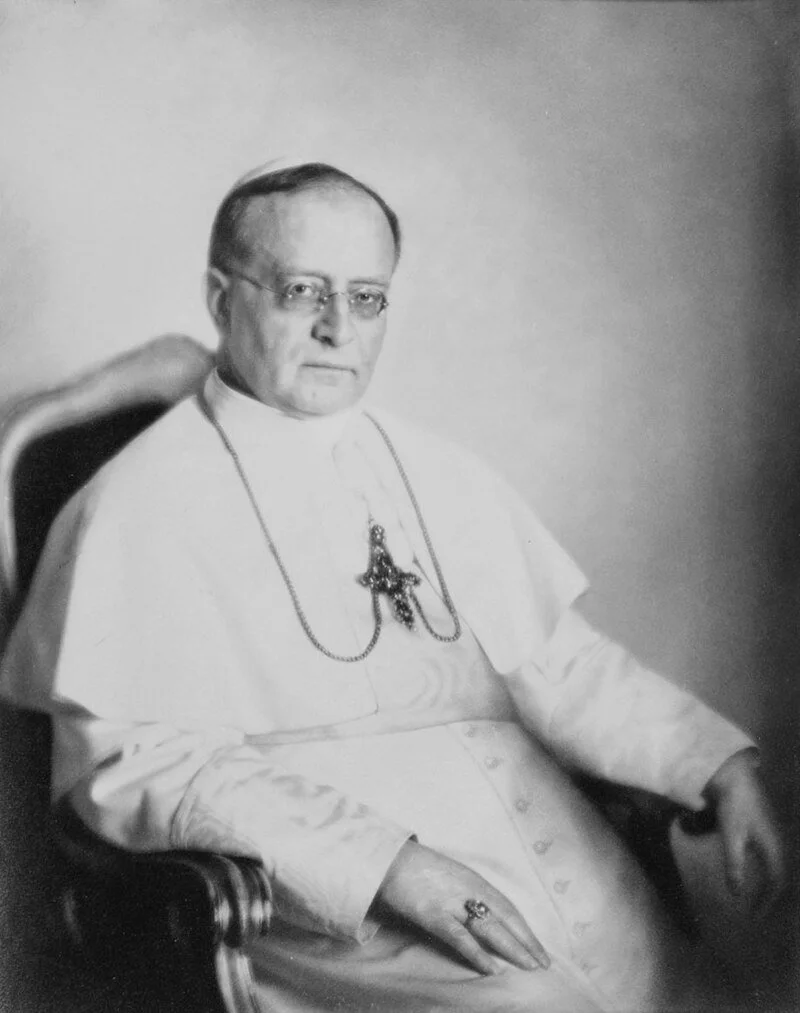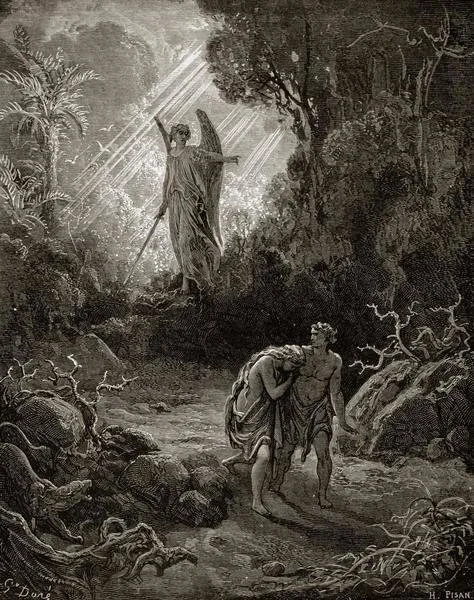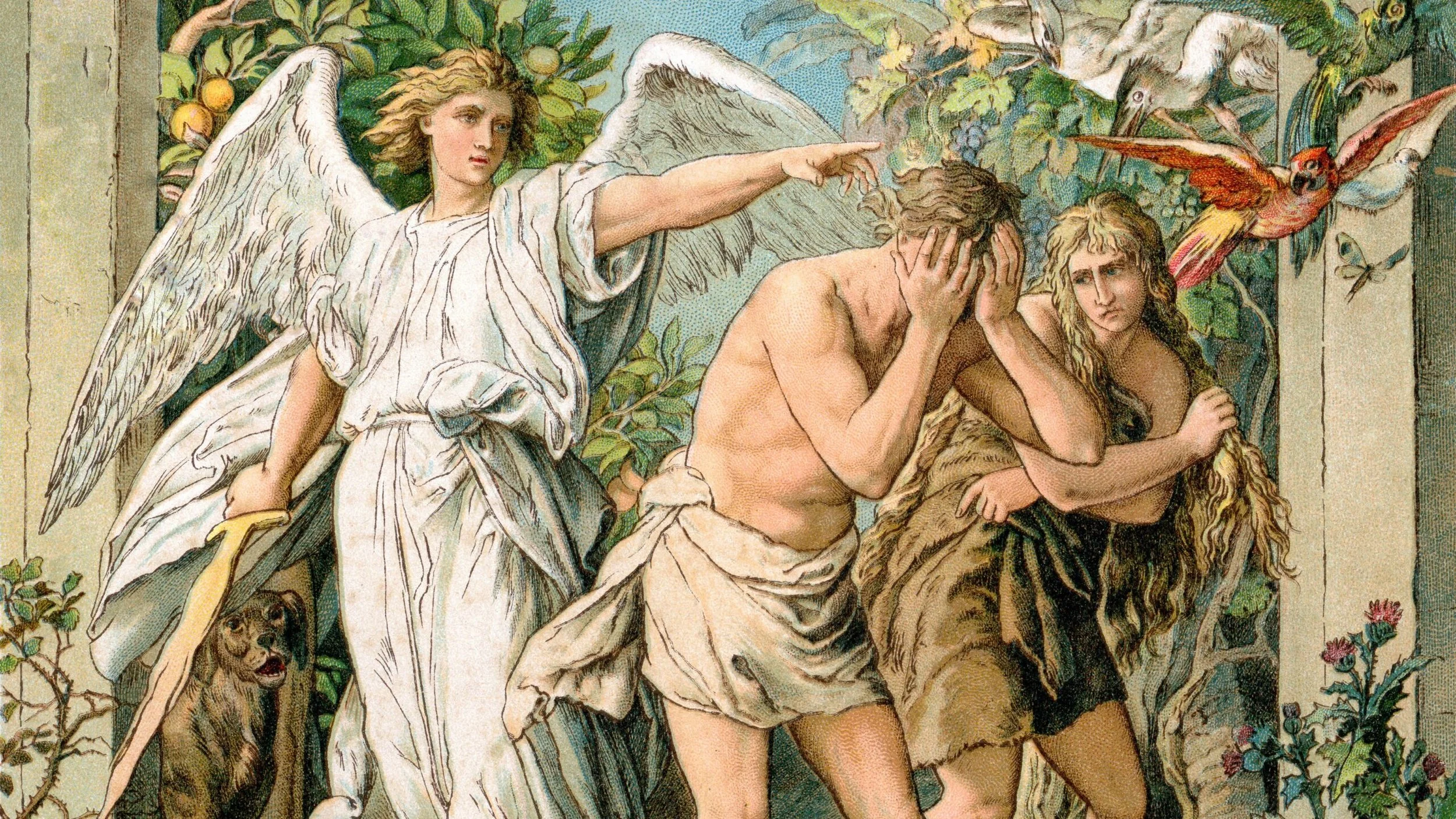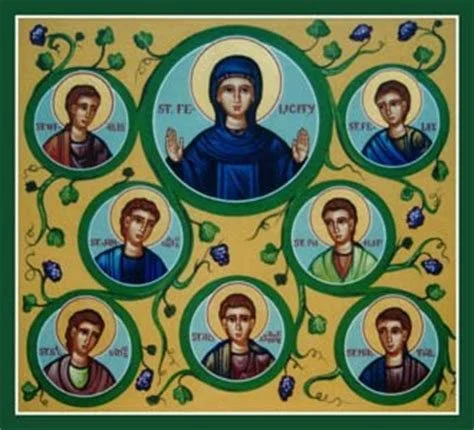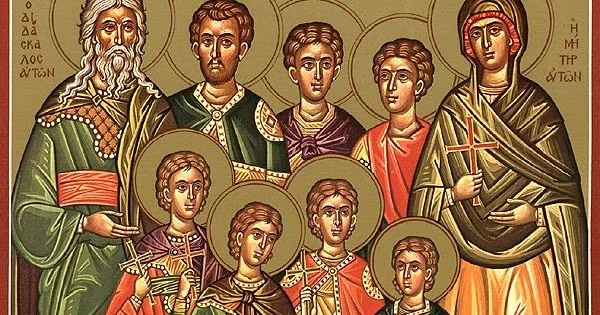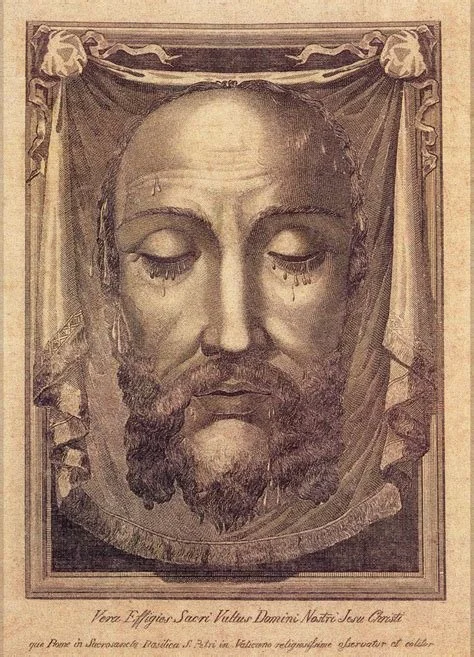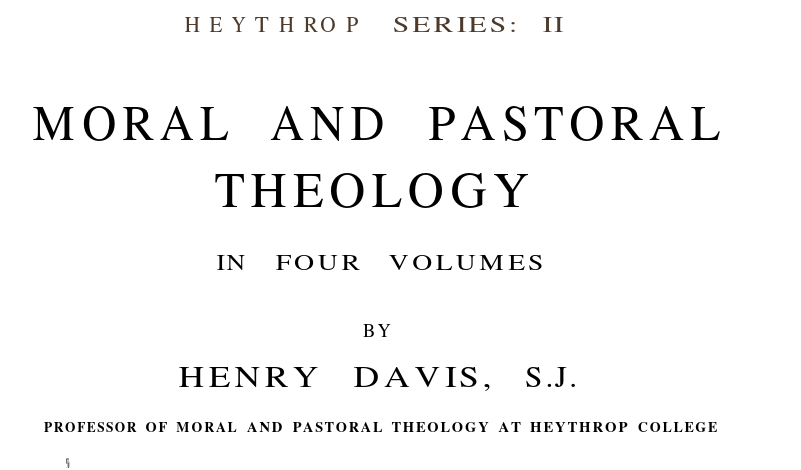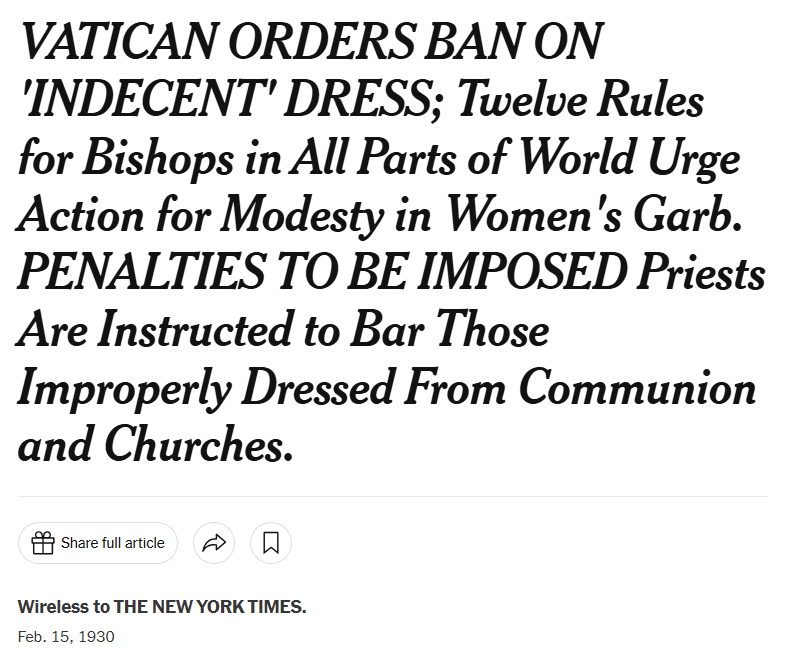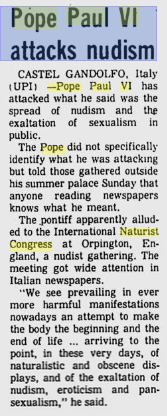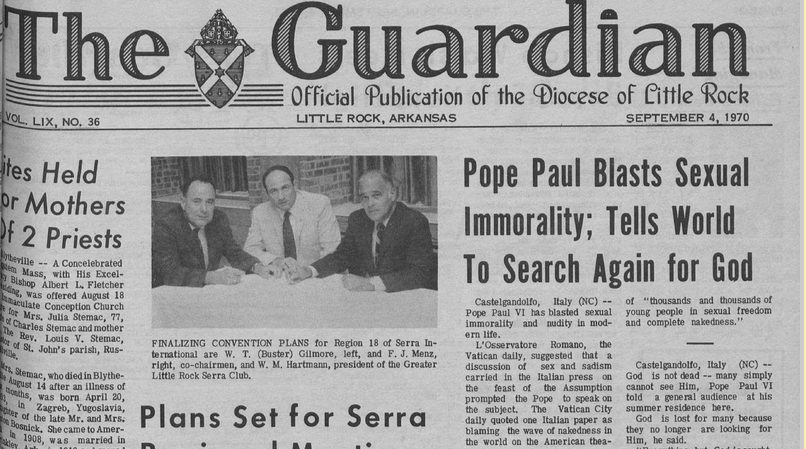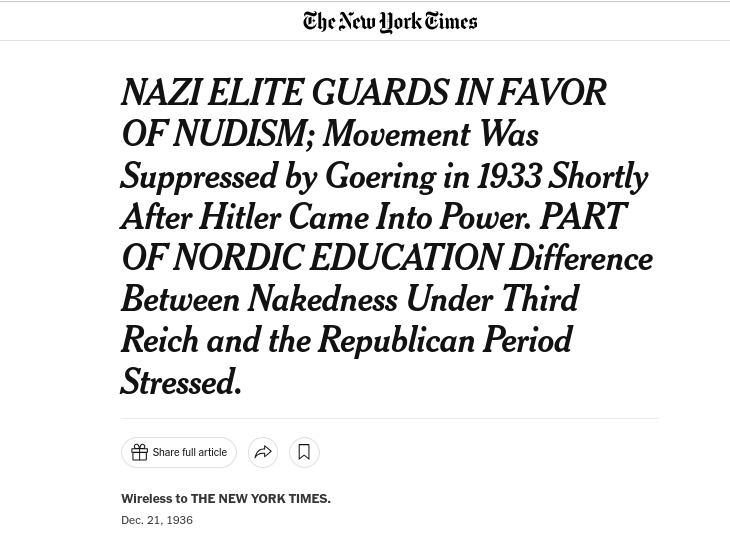Popes Pius XI and XII
Defenders of Modesty
The Saints, the Popes and Scripture on Modesty - a Fruit of the Holy Spirit
PUDOR - SENSE OF SHAME
“Were they ashamed when they committed abomination? No, they were not ashamed; they did not now how to blush.” Jeremiah 8:12
Zephaniah 3:5
“The unjust knows no shame.”
Psalm 44:15
“All day long my disgrace is before me, and shame has covered my face.”
Aquinas says the feeling of Shame can be a useful moral reaction designed for our repentance. It is related to the virtue of temperance that moderates our desires.
Shame inspires repentance and conversion. Without shame and temperance, we cannot discipline our disordered passions. Shame inspires us to hate sin and to seek a pure heart. Without shame, we become more like an animal. To deny shame is to speciously assert that natural feelings of humiliation or distress caused by the consciousness of wrong or foolish behaviour can somehow be diminished by re-education or unlearning. This is dangerous and a grave cause of scandal.
"Shamefacedness is a part of temperance, not as though it entered into its essence, but as a disposition to it: wherefore Ambrose says (De Offic. i, 43) that "shamefacedness lays the first foundation of temperance," by inspiring man with the horror of whatever is disgraceful.(ST II-II, Q. 144, A. 4).
Isaiah 3:9: “The look on their faces bears witness against them; they proclaim their sin like Sodom; they do not hide it.”
Psalm 34:4-5 (NIV): "I sought the Lord, and he answered me; he delivered me from all my fears. Those who look to him are radiant; their faces are never covered with shame".
Shame and Modesty
Shame: Warns a person when behavior or exposure is sinful or immodest. Modesty covers and protects what is required for dignity
Modesty: Responds to that sense of shame by guiding proper conduct. Modesty does not provoke lust or the passions which leads to shame and regret
Virtuous Dynamic: Shame + Modesty = Respect for virtue and proper moral behavior.
Temperance: Works alongside both, governing internal desires and impulses. While shame points out a potential moral danger and modesty guides behavior, temperance disciplines our desires by directing them towards goodness
In Thomistic terms:
Shame = natural feeling indicating moral concern
Temperance = virtue disciplining desires ordering them to goodness
Modesty = virtue guiding external behavior in accordance with reason and disciplined desire.
Avoiding Scandal = behaviour that occasions another’s spiritual downfall.
Immodesty often gives active scandal, especially in sexual matters. Temperance inclines one to avoid behavior that would reasonably lead others into sin.
The Words of Our Lord Jesus Christ in the Gospels of Matthew (Chapter 15) & Mark:
13But Jesus replied, “Every plant that My heavenly Father has not planted will be pulled up by its roots. 14Disregard them! They are blind guides. If a blind man leads a blind man, both will fall into a pit.”
15Peter said to Him, “Explain this parable to us.”
16“Do you still not understand?” Jesus asked. 17“Do you not yet realize that whatever enters the mouth goes into the stomach and then is eliminated? 18 But the things that come out of the mouth come from the heart, and these things defile a man. 19For out of the heart come evil thoughts, murder, adultery, sexual immorality, theft, false testimony, and slander.
1 Corinthians 5
Immorality Rebuked
4 So when you are assembled and I am with you in spirit, and the power of our Lord Jesus is present, 5 hand this man over to Satan for the destruction of the flesh, so that his spirit may be saved on the day of the Lord.
…6Your boasting is not good. Do you not know that a little leaven works through the whole batch of dough? 7Get rid of the old leaven, that you may be a new unleavened batch, as you really are. For Christ, our Passover lamb, has been sacrificed. 8Therefore let us keep the feast, not with the old bread, leavened with malice and wickedness, but with the unleavened bread of sincerity and of truth.
9 I wrote to you in my letter not to associate with sexually immoral people— 10 not at all meaning the people of this world who are immoral, or the greedy and swindlers, or idolaters. In that case you would have to leave this world. 11 But now I am writing to you that you must not associate with anyone who claims to be a brother or sister but is sexually immoral or greedy, an idolater or slanderer, a drunkard or swindler. Do not even eat with such people. […]
12 What business is it of mine to judge those outside the church? Are you not to judge those inside? 13 God will judge those outside. “Expel the wicked person from among you.”
Catechism of the Catholic Church 1832
The fruits of the Spirit are perfections that the Holy Spirit forms in us as the first fruits of eternal glory. The tradition of the Church lists twelve of them: "charity, joy, peace, patience, kindness, goodness, generosity, gentleness, faithfulness, modesty, self-control, chastity."112
Modesty is the Guardian of Purity - St Thomas Aquinas
Romans 12:2
Do not be conformed to this age, but be transformed by the renewing of your mind, so that you may discern what is the good, pleasing, and perfect will of God.
1 Corinthians 10:32
32 Do not become a stumbling block, whether to Jews or Greeks or the church of God—
Leviticus 18:3: "You shall not do what is done in the land of Egypt where you once lived, nor shall you do what is done in the land of Canaan where I am bringing you. You shall not follow their practices."
The answer to immodesty is to foster a Holy Shame. Shame is a natural protector against Lust and the sins of the flesh. Shamefacedness about sin is an important practice. Sirach 4:21 there is a shame which is glory and favor. Shame is a Guardian of Chastity and a protection against sin. “Woe to those who have lost the capacity to blush!” (cf. Jeremiah 6:15, 8:12). Saint Thomas Aquinas says “shamefacedness is sometimes called a virtue, since it is a praiseworthy passion.” Shame of the Body, Shame of Nakedness and Shame Feelings are Good insofar as they are conducive of meekness, humility and chastity. Teaching people & especially children about Shame is Good insofar as Shame is a natural protection against exploitation and predation. Shame offers protection against vulnerability.
St. Ignatius of Loyola
“If you wish to arrive speedily at the summit of perfection, animate yourself to a true love of shame, insults, and calumny.”
— Spiritual Exercises
The Beginning of Modesty:
Genesis 3:7 [after eating the fruit of the tree] Then the eyes of both of them were opened, and they realized they were naked; so they sewed fig leaves together and made coverings for themselves. […] 9 But the Lord God called to the man, “Where are you?” 10 He answered, “I heard you in the garden, and I was afraid because I was naked; so I hid. […] 21The Lord God made garments of skin for Adam and his wife and clothed them.
Previously, Genesis 2:25 “Adam and his wife were both naked, and they felt no shame.”
We live after the Fall…
The “Curse” of Ham (the father of Canaan) for uncovering the nakedness of his Father in Genesis 9:20–27 to be the lowest of Slaves “Cursed be Canaan! The lowest of slaves will he be to his brothers.” (Genesis 9:25)
2nd Book of Kings (2 Samuel) Chapter 11
The sins of King David - adultery and murder - after seeing the nakedness of Bathsheba - punishment: “The sword will never depart from your house” (2 Samuel 12:10); “the child who is born to you shall die.” (2 Samuel 12:14); “You did it in secret, but I will do this thing in broad daylight before all Israel” (2 Samuel 12:12)
In a nutshell: Immodesty (nudity, etc.) is sexual immorality (πορνεία*) because immodesty inflames the passions & causes lust in ourselves and others. Therefore, it is a severe sin. Modest costume protects us from temptation.
*Acts 15:20, 29; Acts 21:25; Romans 1:29; 1 Corinthians 5:1; 1 Corinthians 6:13, 18; 1 Corinthians 7:2; 2 Corinthians 12:21; Ephesians 5:3; Colossians 3:5; 1 Thessalonians 4:3; Revelation 9:21;
Immodesty, deviancy, perversity, voyeurism and exhibitionism are linked.
“19 For out of the heart come evil thoughts—murder, adultery, sexual immorality, theft, false testimony, slander. 20 These are what defile a person”
Matthew 15
Put to death, therefore, the components of your earthly nature: sexual immorality, impurity, lust, evil desires, and greed, which is idolatry. Colossians 3:5
Act of Reparation to the Sacred Heart
Most sweet Jesus, whose overflowing charity for men is requited by so much forgetfulness, negligence and contempt, behold us prostrate before Thee, eager to repair by a special act of homage the cruel indifference and injuries to which Thy loving Heart is everywhere subject. Mindful, alas! that we ourselves have had a share in such great indignities, which we now deplore from the depths of our hearts, we humbly ask Thy pardon and declare our readiness to atone by voluntary expiation, not only for our own personal offenses, but also for the sins of those, who, straying far from the path of salvation, refuse in their obstinate infidelity to follow Thee, their Shepherd and Leader, or, renouncing the promises of their baptism, have cast off the sweet yoke of Thy law. We are now resolved to expiate each and every deplorable outrage committed against Thee; we are determined to make amends for the manifold offenses against Christian modesty in unbecoming dress and behavior, for all the foul seductions laid to ensnare the feet of the innocent, for the frequent violations of Sundays and holydays, and the shocking blasphemies uttered against Thee and Thy Saints.
We wish also to make amends for the insults to which Thy Vicar on earth and Thy priests are subjected; for the profanation, by conscious neglect or terrible acts of sacrilege of the very Sacrament of Thy Divine Love; and lastly for the public crimes of nations who resist the rights and teaching authority of the Church which Thou hast founded.
Would, O Divine Jesus, that we were able to wash away such abominations with our blood. We now offer, in reparation for these violations of Thy divine honor, the satisfaction Thou didst once make to Thine Eternal Father on the cross and which Thou continuest to renew daily on our altars; we offer it in union with the acts of atonement of Thy Virgin Mother and all the Saints and of the pious faithful on earth; and we sincerely promise to make recompense, as far as we can with the help of Thy grace, for all neglect of Thy great love and for the sins we and others have committed in the past.
Henceforth, we will live a life of unwavering faith, of purity of conduct, of perfect observance of the precepts of the Gospel and especially that of charity. We promise to the best of our power to prevent others from offending Thee and to bring as many as possible to follow Thee.
O loving Jesus, through the intercession of the Blessed Virgin Mary, our model in reparation, deign to receive the voluntary offering we make of this act of expiation; and by the crowning gift of perseverance keep us faithful unto death in our duty and the allegiance we owe to Thee, so that we may all one day come to that happy home, where with the Father and the Holy Ghost Thou livest and reignest, God, world without end. Amen
Galatians 1:8
But even if we or an angel from heaven should preach a gospel other than the one we preached to you, let them be under God’s curse!
Ecclus. 1:28, "Come not before him with a double heart”
James 1:6 But he must ask in faith, without doubting, because he who doubts is like a wave of the sea, blown and tossed by the wind. 7 That man should not expect to receive anything from the Lord. 8He is a double-minded man, unstable in all his ways
1 Timothy 2
9I also want the women to dress modestly, with decency and propriety, adorning themselves, not with elaborate hairstyles or gold or pearls or expensive clothes, 10but with good deeds, appropriate for women who profess to worship God. […] 15 … if they continue in faith, love and holiness with propriety.
Ὡσαύτως [likewise] γυναῖκας [women] ἐν [in] καταστολῇ [apparel] κοσμίῳ [respectable] μετὰ [with] αἰδοῦς [shamefacedness, a sense of shame, modesty] καὶ [and] σωφροσύνης [self-control] κοσμεῖν [should adorn] ἑαυτάς [themselves], μὴ [not] ἐν [with] πλέγμασιν [braided-hair] καὶ [or] χρυσίῳ [gold] ἢ [or] μαργαρίταις [pearls] ἢ [or] ἱματισμῷ [clothing] πολυτελεῖ [costly] ἀλλ' [but] ὃ [with what] πρέπει [is becoming] γυναιξὶν [to women] ἐπαγγελλομέναις [professing] θεοσέβειαν [the fear of God], δι' [through] ἔργων [good] ἀγαθῶν [works].
Ephesians 5:3
But among you there must not be even a hint of sexual immorality, or of any kind of impurity, or of greed, because these are improper for God’s holy people.
Introductory words …
Immodesty is grave matter because it is scandalous and can excite others to lust. The first theological position is that humans are affected by what is called concupiscence. This is a tendency towards sin that humans inherit from the Fall. It can be known as a slippery slope. Logically we can see that immodesty can lead to further sins. Those why deny this bring to mind 1 Timothy 4-3 and those "Speaking lies in hypocrisy, and having their conscience seared” .. “Now the Spirit manifestly saith, that in the last times some shall depart from the faith, giving heed to spirits of error, and doctrines of devils”. The conscience is the God-given moral consciousness within each of us (Romans 2:15). What is permissible must always be considered in light of charity. 1 Corinthians 8:13 states “12 Now when you sin thus against the brethren, and wound their weak conscience, you sin against Christ. 13 Wherefore, if meat scandalize my brother, I will never eat flesh, lest I should scandalize my brother.”
The context in the Pagan Ancient World was whether a Christian could eat meat that had been initially sacrificed to idols. The Christian pragmatists didn’t care and simply saw it as food, but there were other Christians who refused to handle food that had been involved in pagan religious ceremony. The Apostle acknowledges both positions, but takes the side of charity. We shouldn’t partake of such food if it upsets other Christians. This is what was traditionally known as ‘Scandal’ - an action or attitude that leads another to sin (such as to upset Christians to the point of affecting their Faith). Similarly with immodesty.
It is said that modesty is subjective. The Catechism holds
“2521 Purity requires modesty, an integral part of temperance. Modesty protects the intimate center of the person. It means refusing to unveil what should remain hidden. It is ordered to chastity to whose sensitivity it bears witness. It guides how one looks at others and behaves toward them in conformity with the dignity of persons and their solidarity.
2524 The forms taken by modesty vary from one culture to another. Everywhere, however, modesty exists as an intuition of the spiritual dignity proper to man. It is born with the awakening consciousness of being a subject. Teaching modesty to children and adolescents means awakening in them respect for the human person.
2525 Christian purity requires a purification of the social climate. It requires of the communications media that their presentations show concern for respect and restraint. Purity of heart brings freedom from widespread eroticism and avoids entertainment inclined to voyeurism and illusion.”
Even if modesty has subjective elements, care must be taken for Brethren who would be needlessly scandalized. Concepts of culture, fashion and even comfort cannot take priority over immodesty within Christendom as a whole. Even Christians within universal society should avoid behavior that makes them look ridiculous and gives critics an opportunity to deprecate the faith. Unwise Christians have been laughed to scorn for ridiculous behavior in public. Avoiding these occasions is necessary for the good of the Faith.
There are two further psychological considerations. The first is that modesty is a universal religious concept across all societies. It has been posited that immodesty itself can be used to undermine religion. The second is the unchastity further undermines religious feeling - 1 Timothy 4:2 “Now the Spirit expressly states that in later times some will abandon the faith to follow deceitful spirits and the teachings of demons, 2influenced by the hypocrisy of liars, whose consciences are seared with a hot iron. “ It is to be noted that in communistic, totalitarian and liberal societies, immodesty and unchastity is tolerated or encouraged with a concomitant decline in religious feeling. People with no time for modesty and chastity tend to have no time for God. See the Fatima Apparitions and mention of immodest fashions.
Titus 2:7-8
In everything, show yourself to be an example by doing good works. In your teaching show integrity, dignity, /and wholesome speech that is above reproach, so that anyone who opposes us will be ashamed, having nothing bad to say about us.
1 Peter 2:11-12
Beloved, I urge you, as foreigners and exiles, to abstain from the desires of the flesh, which war against your soul. Conduct yourselves with such honor among the Gentiles that, though they slander you as evildoers, they may see your good deeds and glorify God on the day He visits us.
Romans 12:17
Do not repay anyone evil for evil. Carefully consider what is right in the eyes of everybody.
Arguments in favor of immodesty often involve convenience or comfort. Similarly in the Ancient Pagan World with the pagan-food dispute. It was more convenient to partake of food that was offered to idols, even if one did not believe in those idols. It was more comfortable than making a generous meal oneself. However, because some other Christians (those who had formally been pagans for instance) were upset by this, the Apostle said it was not right to eat the food because it upset one’s neighbour. There were other meals available. Similarly, there are other fashions available that are not so divisive.
In the times of the Maccabees, secular Jews had become Hellenized. They enjoyed pagan pursuits more than religious ones. The pagan rulers supported them and encouraged them. Thus, leading Jews engaged in gymnasium sports with immodesty, freely attending pagan festivals and became ashamed of their religion to the point of engaging in foreskin restoration. Not so the faithful Jews who opposed this paganism and fought bravely and admirably against all these assaults on their faith. The final straw being the pagan authorities offering a pig sacrifice on the altar of the Temple in Jerusalem in an attempt to forcibly suppress the unique Jewish religious practices and force Hellenization on the Jewish people. This was an attempt to make Judaism just one of many religions and to remove its special character. The faithful Jews could not tolerate this and engaged in a form of guerilla warfare to restore their faith and religion. They were persecuted harshly, but ultimately prevailed. The Maccabees successfully reclaimed the Temple in Jerusalem, re-establishing Jewish worship, and eventually achieved independence. This was much like the Communist persecution of religious Jews in the Soviet Union. Solzhenitsyn wrote of rabbis being forced to perish in the freezing snow by Commissars. The Communists destroyed Synagogues in Russia and Jewish religious institutions throughout the Soviet Union. The Communists tried to destroy Jewish life and force Judaism and Christianity to lose its special character. Ultimately, the Communists did not prevail.
We live in a very visual world. Perhaps there is no greater output of pornography since Roman times. There are two commandments concerning lust - adultery and coveting. One is physical the other is a mental process of desiring. It means more than simply desiring another spouse for one’s own. In Matthew 5:28, Jesus says that everyone who looks at a woman with lust for her has already committed adultery with her in his heart. Adultery includes looking with lust between/inclusive of physical adultery and mental desire. Coveting means to yearn to desire something. It is more than desiring another man’s wife as one’s own. It includes passing desire that is equal to adultery. The act of adultery does not simply mean wishing another man’s wife as one’s own. Adultery can be a temporal act. Not every act of adultery requires permanent desire. The German phrase augenblick (blink of an eye) is relevant here. There are therefore at least 4 types of adultery. Physical adultery, desiring another man’s wife to be one’s own, desiring another man’s wife for temporary sin and looking at a woman with lust for however long a period of time (even an augenblick). Of course, there is overlap. However, theological splitting of hairs ignores the purpose of these scriptural quotes. There is a forbidden desire and a forbidden lust. Mental gymnastics to find an exception clause for what is palpably sinful can only be the machinations of evil. Again, for example, adultery is more than wishing Judith to be one’s wife. It includes desiring Judith for non-permanent sexual relations. This can be manifested in the physical act, or by thought. Adultery is not limited to to wife-stealing, seducing for a second marriage or planning for divorce and re-marriage. Adultery would then mean something else and more specific - do not desire to re-marry another man’s spouse. That would mean sex with a married woman would be fine as long as one didn’t wish to steal her away from her husband permanently and marry her. Adultery also means transient affairs as in Proverbs 7:19 (below) and Matthew 5:28. The legal issue of remarriage was dealt separately by Jesus - Mark 10:11-12: And he said to them, 'Whoever divorces his wife and marries another commits adultery against her’. Adultery has two fields - what is known as ‘affairs’ and then the issue of divorce and re-marriage. The mental part (or lustful thought) similarly involves these two aspects - sexual thoughts for a temporary liaison and a permanent desire for a wife along with sexual relations with her. God is not fooled. Due to the powerful associations between sex and the body it is cognitive dissonance to assume the two are not linked. The mental association with lust and immodesty is such that only a form of asexuality or some psychological deficiency would fail to appreciate the link.
The Battle for Purity is not simply limited to adultery. Sex outside of marriage is listed as sexual immortality in the Epistles. It is a concept known a fornication. Society sees fornication as a victimless act between consenting adults. However, the Apostle reminds us strongly of the primacy of the marriage bed. The Apostle encourages marriage, defends marriage, and prioritizes marriage as the highest form of intimate love. Seeing fornication as a threat to the greatness of marriage by minimizing its importance, it is listed as sexual immorality. Fornication is encouraged in society as a form of expression and a form of adventurism. However, the negative impact on the possibilities of higher forms of love as seen in marriage is evident. In modernity this is considered stifling and suffocating. Nevertheless, a strong and exclusive marriage must be superior to countless fornications or uncommitted relationships. By quality and condition, loyal marriage outstrips all other forms of relationships. That is why it is encouraged in the Bible, and other relationships considered inferior, spiritually harmful and a weak imitation of the marriage bond. It is only for the good of souls and to ensure the best possible life for those called to wedlock that the Saints counsel marriage and reject fornication as a base form of relationship.
Proverbs 7
21She entangled him with many words, and drew him away with the flattery of her lips.
22Immediately he followeth her as an ox led to be a victim, and as a lamb playing the wanton, and not knowing that he is drawn like a fool to bonds
Romans 14
15 If your brother or sister is distressed because of what you eat, you are no longer acting in love. Do not by your eating destroy someone for whom Christ died.
Catholic Encyclopedia on Concupiscence (1908)
“A short but important statement of the Catholic doctrine on this point may be quoted from Peter the Deacon, a Greek, who was sent to Rome to bear witness to the Faith of the East: "Our belief is that Adam came from the hands of his Creator good and free from the assaults of the flesh" (Lib. de Incarn., c. vi). In our first parents, however, this complete dominion of reason over appetite was no natural perfection or acquirement, but a preternatural gift of God, that is, a gift not due to human nature; nor was it, on the other hand, the essence of their original justice, which consisted in sanctifying grace; it was but a complement added to the latter by the Divine bounty. By the sin of Adam freedom from concupiscence was forfeited not only for himself, but also for all his posterity with the exception of the Blessed Virgin by special privilege. Human nature was deprived of both its preternatural and supernatural gifts and graces, the lower appetite began to lust against the spirit, and evil habits, contracted by personal sins, wrought disorder in the body, obscured the mind, and weakened the power of the will, without, however, destroying its freedom. Hence that lamentable condition of which St. Paul complains when he writes:
I find then a law, that when I have a will to do good, evil is present with me. For I am delighted with the law of God, according to the inward man: but I see another law in my members, fighting against the law of my mind, and captivating me in the law of sin, that is in my members. Unhappy man that I am, who shall deliver me from the body of this death? (Romans 7:21-25)”
Catholic Encyclopedia on Occasions of Sin (1908)
Occasions of sin are external circumstances--whether of things or persons--which either because of their special nature or because of the frailty common to humanity or peculiar to some individual, incite or entice one to sin.
It is important to remember that there is a wide difference between the cause and the occasion of sin. The cause of sin in the last analysis is the perverse human will and is intrinsic to the human composite. The occasion is something extrinsic and, given the freedom of the will, cannot, properly speaking, stand in causal relation to the act or vicious habit which we call sin. There can be no doubt that in general the same obligation which binds us to refrain from sin requires us to shun its occasion. Qui tenetur ad finem, tenetur ad media (he who is bound to reach a certain end is bound to employ the means to attain it).
De Lugo defines proximate occasion (De poenit. disp. 14, n. 149) as one in which men of like calibre for the most part fall into mortal sin, or one in which experience points to the same result from the special weakness of a particular person.
It is certain that one who is in the presence of a proximate occasion at once voluntary and continuous is bound to remove it. A refusal on the part of a penitent to do so would make it imperative for the confessor to deny absolution.
Catholic Encyclopedia on Scandal (1908)
According to St. Thomas (II-II:43:1) scandal is a word or action evil in itself, which occasions another's spiritual ruin. It is a word or action, that is either an external act—for an internal act can have no influence on the conduct of another—or the omission of an external act, because to omit what one should do is equivalent to doing what is forbidden; it must be evil in itself, or in appearance; this is the interpretation of the words of St. Thomas: minus rectum. It is not the physical cause of a neighbor's sin, but only the moral cause, or occasion; further, this moral causality may be understood in a strict sense, as when one orders, requests, or advises another to commit the sin (this is strictly inductive scandal, which some call co-operation in a broad sense), or in a large sense, as when a person without being directly concerned in the sin nevertheless exercises a certain influence on the sin of his neighbor, e.g. by committing such a sin in his presence (this is inductive scandal in a broad sense). For scandal to exist it is therefore essential and sufficient, with regard to the nature of the act and the circumstances under which it takes place, that it be of a nature to induce sin in another; consequently it is not necessary that the neighbour should actually fall into sin; and on the other hand, for scandal strictly so-called, it is not enough that a neighbour take occasion to do evil from a word or action which is not a subject of scandal and exercises no influence on his action; it must be a cause of spiritual ruin, that is of sin, consequently that is not scandal which merely dissuades the neighbour from a more perfect act, as for instance, prayer, the practice of the Evangelical virtues, the more frequent use of the sacraments, etc. Still less can that be considered scandal, which only arouses comment, indignation, horror etc., for instance blasphemy committed in the presence of a priest or of a religious; it is true that the act arouses indignation and in common parlance it is often called scandalous, but this way of speaking is inaccurate, and in strictly theological terminology it is not the sin of scandal. Hence scandal is in itself an evil act, at least in appearance, and as such it exercises on the will of another an influence more or less great which induces to sin. Furthermore, when the action from which another takes occasion of sin is not bad, either in itself or in appearance, it may violate charity (see below), but strictly speaking it is not the sin of scandal. However, some authorities understanding the word scandal in a wider sense include in it this case
NB: Immodesty can have a heretical element. Those who deny the effects of original sin namely concupiscence deny that there is any objective standards as to modesty. This creates a relativism that denies that there are indeed objective standards. Our original parents lost their innocence after the fall.The consequences of original sin, includes concupiscence (Aquinas, Summa, Question 82).
“A mortal sin of scandal is committed by women who go about with their bosom immodestly exposed, or who expose their limbs improperly.” St Alphonsus Ligouri
“Either we must speak as we dress, or dress as we speak. Why do we profess one thing and display another?” St Jerome
‘Avoid failing, not only against purity, but even against the least rules of an exact modesty.’ St Paul of the Cross
“There always exists an absolute norm to be preserved, no matter how broad and changeable the relative morals of styles may be…Style may never give a proximate occasion of sin, and clothing must be a shield against disordered sensuality.” Pope Pius XII November 8, 1957
19The acts of the flesh are obvious: sexual immorality, impurity and debauchery; 20 idolatry and witchcraft; hatred, discord, jealousy, fits of rage, selfish ambition, dissensions, factions 21 and envy; drunkenness, orgies, and the like. I warn you, as I did before, that those who live like this will not inherit the kingdom of God.
Galatians 5:19
Deuteronomy 13:6If anyone secretly entices you—even if it is your brother, your father’s son or your mother’s son, or your own son or daughter, or the wife you embrace, or your most intimate friend—saying, “Let us go worship other gods,” whom neither you nor your ancestors have known, 7any of the gods of the peoples that are around you, whether near you or far away from you, from one end of the earth to the other, 8you must not yield to or heed any such persons. Show them no pity or compassion and do not shield them.
“The virtue of modesty is particularly regarded as the guardian of purity in thought, word, and action… things are seen here and there which are certain to prove offensive to anyone who has retained some respect and regard for Christian virtue and human modesty […] Because of this, the young particularly, whose minds are easily bent towards vice, are exposed to the extreme danger of losing their innocence, which is, by far, the most beautiful adornment of mind and body …Well did not the ancient poet say of this matter: ‘Vice necessarily follows upon public nudity’ (Ennius).” Pope Pius XII – August 15, 1954 delegated Cardinal Ciriaci to issue a letter on modesty.
"Spiritually, we are Semites" (Sept 6, 1938) Pope Pius XI
NB: This references the fact that the Old Testament is an integral part of our faith as an inheritance from having been grafted in Romans 11:11-3. This should inform our attitude to modesty, rather than paganism. The opposite of paganism is our Faith inherited from the Jews
Acta Apostolicae Sedis (Acts of the Apostolic See) to the Bishops and Ordinaries under Pope Pius XI:
“In virtue of the Supreme Apostleship which he exercises in the universal Church, His Holiness, Pius XI, has never ceased to inculcate in word and writing that precept of St. Paul (1 Tim. 2:9-10): ‘Women also in decent apparel; adorning themselves with modesty and sobriety… as it becometh women professing godliness, with good works.’
“And on many occasions, the same Supreme Pontiff has reproved and sharply condemned the immodesty in dress which today is everywhere in vogue, even among women and girls who are Catholics; a practice which does grave injury to the crowning virtue and glory of women, and moreover unfortunately leads not merely to their temporal disadvantage, but, what is worse, to their eternal ruin and that of other souls.
“It is no wonder, then, that Bishops and other Ordinaries of places, as becomes ministers of Christ, have in their respective dioceses unanimously resisted in every way this licentious and shameless fashion, and in doing so have cheerfully and courageously borne the derision and ridicule sometimes directed at them by the ill-disposed.
“Accordingly, this Sacred Congregation for the maintenance of discipline among clergy and people, in the first place accords merited approval and praise to this vigilance and action on the part of the Bishops, and moreover earnestly exhorts them to continue in the purpose and undertaking they have so well begun, and to pursue them with even greater vigor, until this contagious disease be entirely banished from decent society.
“That this may be accomplished with greater ease and security, this Sacred Congregation, in pursuance of the orders of His Holiness, has determined upon the following regulations on the subject:
“I. Especially pastors and preachers, when they have the opportunity, must, according to those words of St. Paul (2 Tim. 4:2): ‘be instant, reprove, entreat, rebuke,’ to the end that women may wear clothes of beocming modesty, which may be an ornament and safeguard of virtue; and they must also warn parents not to permit their daughters to wear immodest clothes.
“II. Parents, mindful of their very grave obligation to provide especially for the moral and religious education of their children, must see to it with special care that their girls receive solid instruction in Christian doctrine from their earliest years; and they themselves must by word and example earnesily train them to a love of modesty and chastity. After the example of the Holy Family they must strive so to order and regulate the family that every member of it shall find at home a reason and inducement to love and to cherish modesty.
“III. Parents should also prevent their daughters from taking part in public drills and athletic contests. If the girls are obliged to take part in them, the parents must see to it that they wear a costume that is entirely modest, and must never permit them to appear in immodest dress.
“IV. Heads of girls’ schools and colleges must strive so to imbue the hearts of their girls with the love of modesty that they may be induced to dress modestly.
“V. They shall not admit to the schools or colleges girls who are given to immodest dress; and if any such have been admitted, they shall be dismissed unless they change their ways.
“VI. Nuns, in accordance with the Letter of 23 August 1928, of the Sacred Congregation of Religious, shall not admit to their colleges, schools, oratories, or amusement centers, nor allow to remain there any girls who do not observe Christian modesty in dress; and in the education of their charges they shall take special care to sow deeply in their hearts a love of chastity and Christian modesty.
“VII. Pious associations of women shall be established and fostered for the purpose of restraining by counsel, example, and activity, abuses regarding immodest dress, and of promoting purity of morals and modesty of dress.
“VIII. Women who wear immodest clothes should not be admitted to these associations; and those who have been admitted, if they afterward commit any fault in this regard and fail to amend after being warned, shall be expelled.
“IX. Girls and women who are immodestly dressed are to be refused Holy Communion and excluded from the office of sponsor in the sacraments of baptism and confirmation, and in proper cases are even to be excluded from the church.
“X. On such feasts throughout the year as offer special opportunities for inculcating Christian modesty, especially on the feasts of the Blessed Virgin, pastors and priests who have charge of pious unions and Catholic associations should not fail to preach a timely sermon on the subject, in order to encourage women to cultivate Christian modesty in dress. On the feast of the Immaculate Conception, special prayers shall be recited every year in all cathedral and parish churches, and when it is possible there shall also be a timely exhortation by way of a solemn sermon to the people.
“XI. The diocesan Council of Vigilance, mentioned in the declaration of the Holy Office, 22 March 1918, shall at least once every year treat especially of the ways and means of providing effectively for modesty in women’s dress.
“XII. In order that this salutary action may proceed with greater efficacy and security, Bishops and other Ordinaries of places shall every third year, together with their report on religious instruction mentioned in the Motu proprio, Orbem Catholicum of 29 June, 1923, also inform this Sacred Congregation upon the situation as regards women’s dress, and upon the measures that will have been taken in pursuance of this Instruction.”
"By no means are women to be allowed to uncover and exhibit any part of their bodies, lest both fall – the men by being incited to look, and the women by attracting to themselves the eyes of men." St Clement of Alexandria
“Happy the husband of a good wife…choicest of his blessings is a modest wife, priceless her chaste person” Sirach 26: 1, 15
Fly fornication. Every sin that a man doth, is without the body; but he that committeth fornication, sinneth against his own body. 1 Corinthians 6:18
Fight the Good Fight - 11But you, O man of God, flee from these things and pursue righteousness, godliness, faith, love, perseverance, and gentleness. 1 Timothy 6:11
But flee thou youthful desires, and pursue justice, faith, charity, and peace, with them that call on the Lord out of a pure heart. 2 Timothy 2:22
My Catholic Faith:
“3. By resisting an impure thought or de-
sire is not meant thinking of and pondering
over it. In temptation of this nature, the
most effective means is to reject it at once,
then to ignore it, to do something else to
distract the mind. Worrying about the
temptation only makes it more persistent.”
Impure, immodest and lustful thoughts must be rejected immediately. These thoughts inflame the passions. They are sins, both directly and proximately.
“as we tear down speculations and every lofty thing raised up against the knowledge of God, and take every thought captive to the obedience of Christ”
2 Corinthians 10:5
“Then, after desire has conceived, it gives birth to sin; and sin, when it is full-grown, gives birth to death.”
James 1:15
…13For such men are false apostles, deceitful workers, masquerading as apostles of Christ. 14And no wonder, for Satan himself masquerades as an angel of light. 15It is not surprising, then, if his servants masquerade as servants of righteousness. Their end will correspond to their actions
2 Corinthians 11
”Finally, brothers, whatever is true, whatever is honorable, whatever is right, whatever is pure, whatever is lovely, whatever is admirable—if anything is excellent or praiseworthy—think on these things.”
Philippians 4:8
Naturism, or nudism, is a mortal sin. There is no justification for it. No one has the right to look at the nakedness of another person unless he or she is married to that person. It is a sin through immodesty & scandal, and then a near occasion of sin. One cannot therefore be a Catholic naturist or a Catholic nudist.
1 Corinthians 8:133:
"Therefore, if what I eat causes my brother or sister to fall into sin, I will never eat meat again, so that I will not cause them to fall."
El nudismo o naturismo es un pecado (ocasión de pecado)
נטוריזם ונודיזם הם חטא חמור. אין לכך הצדקה. זהו אירוע קרוב לחטא. הנאצים תמכו בנודיזם. עירום שימש להשפלת יהודים במהלך השואה. נטוריזם ונודיזם מובילים לאוננות, זנות, פורנוגרפיה וניאוף. אל תעשו זאת. הקשיבו לכומר או לרב שלכם.
נאַטוריזם, און נודיזם, איז אַ ערנסטע זינד. עס איז נישטאָ קיין רעכטפֿאַרטיקונג דערפֿאַר. עס איז כּמעט אַ געלעגנהייט צו זינדן. די נאַציס האָבן געשטיצט נודיזם. נאַקעטקייט איז געניצט געוואָרן צו דערנידעריקן ייִדן בעת דעם חורבן. נאַטוריזם און נודיזם פֿירט צו מאַסטורבאַציע, זנות, פּאָרנאָגראַפֿיע און ניאוף. טוט נישט דעם זינדיקן נאַטור. הערט צו צו אייער גלח אָדער אייער רב.
Nudismus oder Naturismus (FKK) ist eine Sünde (Gelegenheit zur Sünde)
Le nudisme ou le naturisme est un péché (occasion proche de péché)
Il nudismo è un peccato (quasi occasione di peccato)
O nudismo é um pecado (quase uma ocasião para pecar).
Nudyzm lub naturyzm jest grzechem (okazją do grzechu)
Натуризм, или нудизм, является смертным грехом (поводом для греха)
Натуризм, або нудизм, є смертним гріхом (випадком гріхопадіння)
Naturizm veya çıplaklık ölümcül bir günahtır (günah vesilesidir)
裸体主义是一种罪过(几乎是一种犯罪的契机)。
裸體主義是一種罪過(幾乎是一種犯罪的契機)。
누디즘은 죄입니다(죄를 범할 수 있는 기회).
ヌーディズムは罪です(ほとんど罪を犯す機会です)。
Ang nudism ay isang kasalanan (halos isang dahilan para sa kasalanan).
Chủ nghĩa khỏa thân hay chủ nghĩa khỏa thân tự nhiên là một tội lỗi (một dịp phạm tội).
Nudisme atau naturisme adalah dosa (kesempatan untuk berbuat dosa)
التعري خطيئة (مناسبة قريبة للخطيئة)
नग्नवाद या प्रकृतिवाद एक पाप है (पाप का एक अवसर)
གཟུགས་མེད་རིང་ལུགས་ཡང་ན་རང་བྱུང་རིང་ལུགས་ནི་སྡིག་པ་རེད།
“Sunbaths and air baths taken by members of both sexes together and without costumes are fertile sources of grievous sins, and there is no justification for them.
Gymnastic exercises of nude males and females together are unnecessary and an offence against modesty. In gymnastic exercises, even where uniforms are worn, special care is to be taken of Christian modesty in young women and girls, which is so gravely impaired by any such kind of exhibition in public (see Encycl. letter of Pope Pius X I on the Christian Education of Youth).” Henry Davis, SJ Moral and Pastoral Theology 4th Edition, 1943, Sheen and Ward, New York
NB: Another aspect of immodesty is the proper separation of the genders. Monasticism has recognized the importance of gender separation for the development of community and individual spirituality. The genders must be separated to achieve the fullness of purity and modesty. The shameless mixing of the genders can only inflame passions and generate terrible manifestations of lust. If Job himself said he has never looked upon a maiden to justify himself, what can be said of those who ignore these realities? There are no romantic notions here, bur the maintaining of proper and well-organized Christian society. Men should not intrude upon the protected spaces of women as much as women must realize that their presence can only disturb a carefully maintained sanctuary. It is a lie that the genders can always mix without spiritual consequences. The realization that man can only reach his full spiritual potential without interference from any temptation is proof itself that gender separation is of vital importance.
SACRA PROPEDIEM ENCYCLICAL OF POPE BENEDICT XV 1921
19. From this point of view one cannot sufficiently deplore the blindness of so many women of every age and condition; made foolish by desire to please, they do not see to what a degree the in decency of their clothing shocks every honest man, and offends God. Most of them would formerly have blushed for those toilettes as for a grave fault against Christian modesty; now it does not suffice for them to exhibit them on the public thoroughfares; they do not fear to cross the threshold of the churches, to assist at the Holy sacrifice of the Mass, and even to bear the seducing food of shameful passions to the Eucharistic Table where one receives the heavenly Author of purity. And We speak not of those exotic and barbarous dances recently imported into fashionable circles, one more shocking than the other; one cannot imagine anything more suitable for banishing all the remains of modesty.
Sacred Congregation of the Council [Decree of the Congregation of the Council (by the mandate of Pope Pius XI), 1930 A.D.]
“The parish priest, and especially the preacher, when occasion arises, should according to the words of the Apostle Paul (2 Timothy 4:2), insist, argue, exhort and command that feminine garb be based on modesty and womanly ornament, and be a defense of virtue. Let them likewise admonish parents to cause their daughters to cease wearing indecorous dress.”
“The good of our soul is more important than that of our body; and we have to prefer the spiritual welfare of our neighbor to our bodily comforts…
If a certain kind of dress constitutes a grave and proximate occasion of sin, and endangers the salvation of your soul and others, it is your duty to give it up…
O Christian mothers, if you knew what a future of anxieties and perils, of ill-guarded shame you prepare for your sons and daughters, imprudently getting them accustomed to live scantily dressed and making them lose the sense of modesty, you would be ashamed of yourselves and you would dread the harm you are making for yourselves, the harm which you are causing to these children, whom Heaven has entrusted to you to be brought up as Christians.
Christian mothers, if only you knew the future of distress and peril, of shame ill-restrained, that you prepare for your sons and daughters in imprudently accustoming them to live hardly clothed and in making them lose the sense of modesty, you should be ashamed of yourselves and of the harm done the little ones whom heaven entrusted to your care, to be reared in Christian dignity and culture.” Pope Pius XII – July 17, 1954
Pornography is a mortal sin
2354 Pornography consists in removing real or simulated sexual acts from the intimacy of the partners, in order to display them deliberately to third parties. It offends against chastity because it perverts the conjugal act, the intimate giving of spouses to each other. It does grave injury to the dignity of its participants (actors, vendors, the public), since each one becomes an object of base pleasure and illicit profit for others. It immerses all who are involved in the illusion of a fantasy world. It is a grave offense. Civil authorities should prevent the production and distribution of pornographic materials.
Catechism of the Catholic Church
Dom Bernard Marechaux
"The evil of our day is this: that the line of demarcation between Christian and non-Christian, between Christian and heretic, between Christian and idolater, is gradually fading away. The cancer of Liberalism attacks everyone and we must be careful not to be infected ourselves. Those who still call themselves Catholic live, too often, like those who have renounced this title. Women who go to church dress just the way women who do not go to church dress; they read the same books and magazines as these women; they go to the same - often immoral - shows as these women; they no longer pray or do penance. It is a confusion of license and worldliness. As a result of these customs, the Church is beginning to disappear in the world. Christianity is being lost. Only rarely does one find Catholics to whom the following words of Saint Paul can apply: "...be blameless and sincere children of God, without reproof, in the midst of a crooked and perverse generation; among whom you shine as lights in the world". (Phil.2:15). The early Christians stood out among the pagans like shining torches in the dark, and the example of their courage and their virtue attracted the pagans strongly to the Faith. This is something which we do not see today, except in rare cases. Everything is a mish-mash of unrestraint."
Archbishop of Toledo Spain, Enrique Cardinal Pla y Daniel, 1959
A Pastoral letter
"A special danger to morals is represented by public bathing at beaches, in pools and riverbanks...MIXED BATHING between men and women which NEARLY ALWAYS IS A PROXIMATE OCCASION OF SIN AND A SCANDAL MUST BE AVOIDED
Pope Pius XII said on the occasion of the canonization of St. Maria Goretti: “During the past 50 years, coupled with what was often a weak reaction on the part of decent people, there has been a conspiracy of evil practices, propagating themselves in books and illustrations, in theaters and radio programs, in styles and clubs and on the beaches, trying to work their way into the heart of the family and society, and doing their worst damage among the youth, even among those of the tenderest years, in whom the possession of virtue is a natural inheritance.”
Pope Pius XII, August 15, 1954
Delegated Cardinal Ciriaci to issue a letter on modesty.
"Everyone knows that during the SUMMER MONTHS particularly, things are seen here and there which are certain to PROVE OFFENSIVE TO ANYONE WHO HAS retained some respect and REGARD FOR Christian virtue and human MODESTY. On the beaches, in country resorts, almost everywhere, on the streets of cities and towns, in private and public places, and, indeed, often in buildings dedicated to God, an unworthy and indecent mode of dress has prevailed. Because of this, the young particularly, whose minds are easily bent towards vice, are exposed to the extreme danger of losing their innocence, which is, by far, the most beautiful adornment of mind and body. Feminine adornment, if it can be called adornment, FEMININE CLOTHING, 'if that can be called clothing which contains nothing to protect either the body or modesty.' (Seneca) are at times of such a nature that they seem to SERVE LEWDNESS RATHER THAN MODESTY. What we are discussing here is obviously most serious, since it vitally concerns not only Christian virtue but also the health and vigor of human society . Well did not the ancient poet say of this matter: 'Vice necessarily follows upon public nudity' (Ennius)."
Pope Pius XI 12 Rules on Dress Published Feb. 17, 1930 in the New York Times -
ROME, Feb. 16.—Pope Pius XI has on several occasions strongly condemned current feminine fashions and similar action has been taken by Catholic Bishops both in Italy and other countries, but the papal criticism has never been accompanied by regulations to remedy the situation. The instructions now being sent to Catholic Bishops and laymen by the Sacred Congregation of the Council, which controls the observance of precepts of the Church, are important as being the first definite outline of policy by the Church in the matter of women's dress. Following is a translation of the complete text of the instructions, a summary of which was printed in THE NEW YORK TIMES Saturday:
INSTRUCTIONS TO ORDINARIES OF DIOCESES ON WOMEN'S IMMODEST FASHION OF DRESS.
By virtue of the supreme apostolate which he wields over the Universal Church by Divine will, our most holy father Pope Pius XI has never ceased to inculcate, both verbally and by his writings, the words of St. Paul [I Timothy, xi, 9, 10], namely, "Women adorning themselves with modesty and sobriety * * * * and professing godliness with good works."
Very often, when occasion arose, the same Supreme Pontiff condemned emphatically the immodest fashion of dress adopted even by Catholic women and girls, which fashion not only deeply offends the dignity and adornment of woman but is conducive to the temporal ruin of the said females and, what is still worse, to their eternal ruin, miserably dragging others in their downfall. It is not surprising, therefore, that bishops and other ordinaries, as is the duty of ministers of Christ, should all in their own dioceses unanimously have opposed this depraved licentiousness and promiscuity of manners, often bearing with fortitude the derision and mockery leveled against them for this cause.
Therefore this Sacred Council, which watches over the discipline of clergy and people, while cordially commending the action of the Holy Bishops, most emphatically exhorts them to persevere in their attitude and increase their activities in so far as their strength permits, in order that this unwholesome disease be definitely uprooted from human society.
Twelve Rules on Dress.
In order to facilitate the effect which is desired, this Sacred Congregation, by the mandate of the most Holy Father, has decreed as follows:
1. The parish priest, and especially the preacher, when occasion arises, according to the words of the Apostle Paul [Second Epistle to Timothy, Chapter IV, Verse 2], should insist, argue, exhort and command that feminine garb be based on modesty and their ornament be a defense of virtue. Let them likewise admonish parents to cause their daughters to cease wearing indecorous dress.
2. Parents, conscious of their most grave obligations toward the education of their offspring, especially religious and moral, should see to it that their daughters are solidly instructed since their earliest childhood in Christian doctrine, and they themselves should assiduously inculcate in their souls, by words and example, the love of the virtues of modesty and chastity; as to their family following the example of the Sacred Family, they must rule in such a manner that all its components brought up in the domestic walls should find reason and an incentive to love and preserve modesty.
3. Let parents keep their daughters away from public gymnastic games and competitions, but if their daughters are compelled to attend the same, let them see that they are fully and modestly dressed. Let them never allow their daughters to don immodest garb.
4. The head mistresses and teachers in girls' schools must do their utmost to instil the love of modesty in the hearts of maidens confided to their care and urge them to dress modestly.
5. The said head mistresses and teachers must not receive in their colleges and schools immodestly dressed girls, and should not even make an exception for the mothers of their pupils. If, after being admitted, girls persist in dressing immodestly, then the pupils should be dismissed.
6. Nuns, in compliance with the letter dated Aug. 23, 1928, by the Sacred Congregation of Religious, must not receive in their colleges, schools, oratories or recreation grounds, or, if once admitted, they must not tolerate girls who are not dressed with Christian modesty; the said nuns, in addition, should do their utmost so that in the hearts of their pupils there should become deeply rooted the love for holy chastity and Christian modesty.
7. It is desirable that pious organizations of women be founded, which by their counsel, example and propaganda should combat the wearing of apparel unsuited to Christian modesty, and should promote purity of customs and modesty of dress.
8. In the pious associations of women, let those not be admitted who dress immodestly, but if, perchance, they are received, and after being admitted fall again to their error, let them be forthwith dismissed.
9. Maidens and women dressed immodestly are to be banned from Holy Communion and from acting as godmothers in the sacraments of baptism and confirmation and, if it be an extreme case, may be even forbidden to enter the Church.
Urges Prayers for Modesty.
10. During the year there occur feast days which give special opportunity to instil Christian modesty, especially the Feast of the Blessed Virgin Mary. Parish priests and priests of the pious unions and associations of Catholic women should not neglect to exhort them to adopt a Christian mode of dress. Moreover, every year on the Feast of the Immaculate Conception, special prayers should be said in all cathedrals and parish churches together with, if possible, opportune exhortations to the people in solemn sermons.
11. The Diocesan Council of Vigilance, of which mention was made in a declaration of the Holy Office of March 22, 1922, should at least once a year seek the best means to preserve the modesty of feminine dress.
12. In order that this salutary action should be even more efficacious and have more satisfactory results, on every third year Bishops and other ordinaries, together with their report on religious instruction, of which mention was made in the motu proprio letters, "Orbem Catholicum," dated June 29, 1923, should likewise report to this Sacred Congregation with precise reference to conditions in regards to the mode of dress as well as on measures taken according to our instructions on this subject.
Given at Rome in the palace of the Sacred Congregation of the Council, on the twelfth of January, on the Feast of the Sacred Family, in the year 1930.
DANATO CARDINAL SBARRETTI, Prefect.
Twelve Rules on Dress.
Urges Prayers for Modesty.
Canadian Bishops, May 1946
"MAN himself does not escape from the inclination of exhibiting his flesh: some GO IN PUBLIC, STRIPPED TO THE WAIST, or in very tight pants or IN very SCANTY BATHING SUITS. They thus commit offenses against the virtue of modesty. They may also be an occasion of sin (in thought or desire) for our neighbor."
“The pagan tendencies in present-day life afflict all open and attentive eyes. For many people life is specifically and paganly given over only to pleasure, to the quest after pleasure, and to amusement that is specifically and paganly immodest, with an immodesty that often exceeds that of ancient pagan life, inasmuch as it is addicted to what is termed with a horrible word and horrible blasphemy, the practice and cult of Nudism.” Pope Pius XI - Rome on the eve of Lent (1935)
“First of all, teach modesty and proper dress in the sermons.” A Papal Decree Concerning Modesty – Pope Pius XI, 1930
Pope Paul VI deplores Nudity on Beaches - August, 1969
“We see prevailing in ever more harmful manifestations nowadays an attempt to make the body the beginning and the end of life ... arriving to the point, in these very days, of naturalistic and obscene displays, and of the exaltation of nudism, eroticism and pansexualism.” Pope Paul VI - Castel Gandolfo, August 1970
“Modesty protects the intimate center of the person. It means refusing to unveil what should remain hidden. . . . Modesty protects the mystery of persons and their love. . . . Teaching modesty to children and adolescents means awakening in them respect for the human person” Catechism of the Catholic Church 2521-2522 and 2524
“There is a modesty of the feelings as well as of the body. It protests, for example, against the voyeuristic explorations of the human body in certain advertisements, or against the solicitations of certain media that go too far in the exhibition of intimate things. Modesty inspires a way of life which makes it possible to resist the allurements of fashion and the pressures of prevailing ideologies.” Catechism of the Catholic Church 2523
“Custody Of The Eyes - But the eyes, in particular, are the inlets to criminal passion, and to this refer these words of our Lord: If thine eye scandalize thee, pluck it out, and cast it from thee. The Prophets, also, frequently speak to the same effect. I made a covenant with mine eyes, says Job, that I would not so much as think upon a virgin. Finally, there are on record innumerable examples of the evils which have their origin in the indulgence of the eyes. It was thus that David sinned, thus that the king of Sichem fell, and thus also that the elders sinned who calumniated Susanna” Council of Trent
“In summary, modest apparel and behavior reduce sexual temptation and the inappropriate arousal of sexual desire in others" - Diocese of La Crosse, Modesty Teacher
Archbishop Albert G. Meyer of Milwaukee, Wisconsin, has these words to say, taken from his Pastoral Letter to the Clergy, Religious and Faithful Laity of May 1, 1956:
“In the desire to fulfill the charge given to us as your pastor, whose duty it is to protect his flock against the enemy, and as an appointed watchman of God, who must speak out in clear and explicit warnings, lest the sins of those who err be charged to his account (Ezech. 33:8-9), we have decided to address this letter to you. In this letter, it is our thought to consider the general subject of Decency… We are impelled to do this as we recall some of the recent forceful statements of our Holy Father (Pope Pius XII). With regard to clothing, modesty requires especially two things: first, care that one does not make purity difficult for oneself, or for others, by one’s own mode of dress; and, second, a prudent but firm and courageous resistance to the styles and customs, no matter how popular or widespread, or adopted by others, which are a danger to purity … We must emphasize in the strongest possible language that it is Catholic teaching, based on the most clear words of Christ Himself, that impure thoughts and desires freely indulged in are serious sins. To invite such impure thoughts and desires through dress … [one] cannot help but participate [in] the grave sin of scandal and cooperation”
Modesty Sets An Example
1 Timothy 4:12
Let no one despise you for your youth, but set the believers an example in speech, in conduct, in love, in faith, in purity.
Titus 2:6-7
Likewise, urge the younger men to be self-controlled. Show yourself in all respects to be a model of good works, and in your teaching show integrity, dignity,
1 Peter 2:12
Keep your conduct among the Gentiles honorable, so that when they speak against you as evildoers, they may see your good deeds and glorify God on the day of visitation.
1 Corinthians 11:1
Be imitators of me, as I am of Christ.
Philippians 3:17
Brothers, join in imitating me, and keep your eyes on those who walk according to the example you have in us.
Matthew 5:16
In the same way, let your light shine before others, so that they may see your good works and give glory to your Father who is in heaven.
Titus 2:6-8
Likewise, urge the younger men to be self-controlled. Show yourself in all respects to be a model of good works, and in your teaching show integrity, dignity, and sound speech that cannot be condemned, so that an opponent may be put to shame, having nothing evil to say about us.
Matthew 5:14
“You are the light of the world. A city set on a hill cannot be hidden.
Philippians 4:8
Finally, brothers, whatever is true, whatever is honorable, whatever is just, whatever is pure, whatever is lovely, whatever is commendable, if there is any excellence, if there is anything worthy of praise, think about these things.
Romans 12:2
Do not be conformed to this world, but be transformed by the renewal of your mind, that by testing you may discern what is the will of God, what is good and acceptable and perfect.
Titus 2:7
Show yourself in all respects to be a model of good works, and in your teaching show integrity, dignity,
Titus 2:3
In the same way, older women are to be reverent in behavior, not slanderers, not addicted to much wine. They are to teach what is good..
Hebrews 13:4
Marriage is to be honored by all and the marriage bed kept undefiled, because God will judge the sexually immoral and adulterers.
1 Corinthians 6:9
9 Or do you not know that the unrighteous will not inherit the kingdom of God? Do not be deceived: neither the sexually immoral, nor idolaters, nor adulterers, nor men who practice homosexuality
Mark 9:42
And whosoever shall scandalize one of these little ones that believe in me; it were better for him that a millstone were hanged around his neck, and he were cast into the sea.
Acts 15:29
29 That ye abstain from meats offered to idols, and from blood, and from things strangled, and from fornication: from which if ye keep yourselves, ye shall do well. Fare ye well.
1 Corinthians 7:4
The wife hath not power of her own body, but the husband. And in like manner the husband also hath not power of his own body, but the wife.
Ephesians 5:22-33
Wives, submit to your husbands as to the Lord. / For the husband is the head of the wife as Christ is the head of the church, His body, of which He is the Savior. / Now as the church submits to Christ, so also wives should submit to their husbands in everything. ...
Colossians 3:18-19
Wives, submit to your husbands, as is fitting in the Lord. / Husbands, love your wives and do not be harsh with them.
Ephesians 5:3
3 Let there be no sexual immorality, impurity, or greed among you. Such sins have no place among God’s people.
1 Corinthians 6:18
18 Flee from sexual immorality. Every other sin a person commits is outside the body, but the sexually immoral person sins against his own body.
1 Corinthians 2
14 The natural person does not accept the things of the Spirit of God, for they are folly to him, and he is not able to understand them because they are spiritually discerned. 15 The spiritual person judges all things, but is himself to be judged by no one.
1 Corinthians 12:22-24
22 … the parts of the body that seem to be weaker are indispensable, 23 and the parts we consider less honorable, we treat with greater honor. And our unpresentable parts are treated with special modesty …
Matthew 18:6
6 "If any of you put a stumbling block before one of these little ones who believe in me, it would be better for you if a great millstone were fastened around your neck and you were drowned in the depth of the sea.
Luke 17:1
And he said to his disciples, “Temptations to sin are sure to come, but woe to the one through whom they come! It would be better for him if a millstone were hung around his neck and he were cast into the sea than that he should cause one of these little ones to sin. Pay attention to yourselves! If your brother sins, rebuke him, and if he repents, forgive him, and if he sins against you seven times in the day, and turns to you seven times, saying, ‘I repent,’ you must forgive him.” The apostles said to the Lord, “Increase our faith!” ...
Matthew 19:14: “But Jesus said, ‘Let the little children come to Me, and do not forbid them; for of such is the kingdom of heaven.’”
Romans 14:21
Live in a way that does not cause your brother to stumble
Matthew 5:28
Whoever shall look on a woman to lust after her hath already committed adultery with her in his heart.
NB: The fact that the married might both consent to immodesty involving others does in no way permit it. God has set the boundaries of Christian marriage and it in no way includes third parties…
“….. the flesh profiteth NOTHING” (John 6:63)
Juvenal:
" Scelus intra se tacitus qui cogitat ullum,
Facti crimen habet."
["Who in his breast a guilty thought doth cherish,
He bears the guilt of action."]
For you, brothers, were called to freedom; but do not use your freedom as an opportunity for the flesh.
Job 31:1
“I made a covenant with my eyes not to look lustfully at a young woman”
1 John 2:16
For all that is in the world—the desires of the flesh and the desires of the eyes and pride of life—is not from the Father but is from the world.
Proverbs 6
24 keeping you from your neighbor’s wife,
from the smooth talk of a wayward woman.
25 Do not lust in your heart after her beauty
or let her captivate you with her eyes.
They are well-fed, lusty stallions, each neighing after his neighbor’s wife.
1 Timothy 2:8-9
Men should pray…women should adorn themselves modestly and sensibly
Ephesians 5:3, 5
Let there be no filthiness, nor silly talk…but instead let there be thanksgiving.
Romans 14
… But whoever has doubts is condemned.
1 Corinthians 15:33
Do not be misled: “Bad company corrupts good character.”
The Sixth Commandment: Exodus 20:14
Thou shalt not commit adultery.
The Ninth Commandment: Exodus 20:17
You shall not covet your neighbor’s wife
Leviticus 18:7–16, 26-30
7 You shall not uncover the nakedness of your father, which is the nakedness of your mother; she is your mother, you shall not uncover her nakedness. 8 You shall not uncover the nakedness of your father’s wife; it is your father’s nakedness. 9 You shall not uncover the nakedness of your sister, your father’s daughter or your mother’s daughter, whether brought up in the family or in another home. 10 You shall not uncover the nakedness of your son’s daughter or of your daughter’s daughter, for their nakedness is your own nakedness. 11 You shall not uncover the nakedness of your father’s wife’s daughter, brought up in your father’s family, since she is your sister. 12 You shall not uncover the nakedness of your father’s sister; she is your father’s relative. 13 You shall not uncover the nakedness of your mother’s sister, for she is your mother’s relative. 14 You shall not uncover the nakedness of your father’s brother, that is, you shall not approach his wife; she is your aunt. 15 You shall not uncover the nakedness of your daughter-in-law; she is your son’s wife, you shall not uncover her nakedness. 16 You shall not uncover the nakedness of your brother’s wife; it is your brother’s nakedness. […]
Punishments
26 Keep ye my ordinances and my judgments, and do not any of these abominations: neither any of your own nation, nor any stranger that sojourneth among you. 27 For all these detestable things the inhabitants of the land have done, that; were before you, and have defiled it. 28 Beware then, lest in like manner, it vomit you also out, if you do the like things, as it vomited out the nation that was before you. 29 Every soul that shall commit any of these abominations, shall perish from the midst of his people. 30 Keep my commandments. Do not the things which they have done, that have been before you, and be not defiled therein. I am the Lord your God.
Leviticus 20
Punishments
11If a man lie with his stepmother, and discover the nakedness of his father, let them both be put to death: their blood be upon them. […] 17If any man take his sister, the daughter of his father, or the daughter of his mother, and see her nakedness, and she behold her brother's shame: they have committed a crime: they shall be slain, in the sight of their people, because they have discovered one another's nakedness, and they shall bear their iniquity. 18If any man lie with a woman in her flowers, and uncover her nakedness, and she open the fountain of her blood, both shall be destroyed out of the midst of their people. 19Thou shalt not uncover the nakedness of thy aunt by thy mother, and of thy aunt by thy father: he that doth this, hath uncovered the shame of his own flesh, both shall bear their iniquity. 20If any man lie with the wife of his uncle by the father, or of his uncle by the mother, and uncover the shame of his near akin, both shall bear their sin: they shall die without children. 21He that marrieth his brother's wife, doth an unlawful thing, he hath uncovered his brother's nakedness: they shall be without children.
Exodus 20:26 Neither shalt thou go up by steps unto mine altar, that thy nakedness be not discovered thereon.
Exodus 28:42 And thou shalt make them linen breeches to cover their nakedness; from the loins even unto the thighs they shall reach:
Moses saw that the people were naked (for Aaron had made them naked unto their SHAME among their enemies)” (Exodus 32:25).
Genesis 9:22
20Noah, a man of the soil, proceeded to plant a vineyard. 21When he drank some of its wine, he became drunk and lay uncovered inside his tent. 22Ham, the father of Canaan, saw his father naked and told his two brothers outside. 23But Shem and Japheth took a garment and laid it across their shoulders; then they walked in backward and covered their father’s naked body. Their faces were turned the other way so that they would not see their father naked.
24When Noah awoke from his wine and found out what his youngest son had done to him, 25he said,
“Cursed be Canaan!
The lowest of slaves
will he be to his brothers.”
26He also said,
“Praise be to the Lord, the God of Shem!
May Canaan be the slave of Shem.
27May God extend Japheth’s territory;
may Japheth live in the tents of Shem,
and may Canaan be the slave of Japheth.”
Nudist Hall of Shame detailing Pedophiliac Crimes and Psychological Abuse against Children by Nudists & Naturists [R [21+] warning: evidential images of full frontal nudity & disturbing testimony] http://www.nostatusquo.com/ACLU/NudistHallofShame/ (please see Archive for HTTPS link) - Exposing Nudism & Naturism's Dirty Little Secrets: Pedophilia, Swinging, Pornography and Sexual Exploitation [R [21+] warning: evidential images of full frontal nudity & disturbing testimony] - browse using Lynx if required (text only) - https://lynx.invisible-island.net/. Telling the truth is an Act of Justice - one of the Four Cardinal Virtues. While we should avoid scandal, the investigatory work done by the author is compelling and convincing. Tender and young consciences be forewarned.
See also - Naked: A vulnerable child trapped in a predatory world. A shocking story by Jo Hill 7 August 2008 - “Miserable at home and friendless at school, she didn't think life could get worse. But it did. Her father became obsessed with going to nudist camps, and they soon became a dreaded weekly fixture. Forced to show her bare body in front of total strangers, Jo suffered at the hands of men who were at the camps to prey on young, naked girls.
Men who were there to befriend, groom and sexually abuse. Living in fear of her shameful family secret being exposed, Jo coped by rebelling both at home and at school. But it took the violent rape of a young camper for Jo to finally find the courage to disobey her powerful and controlling father - and break free.”
See also - “About 40% of nudists are swingers”
Comment: This naturism is a heresy because it denies the requirements of immodesty. It redefines modesty to mean there is a type of modesty where everyone is naked. This would mean that common nudity would be enough to meet the requirements for modesty. Any breach of modesty requires justification under moral theology. The justifications are specious and ignores the effects of concupiscence and also that nakedness has an unique effect on concupiscence. It has also long been associated with paganism, neo-paganism & witchcraft (where it is called “skyclad”). The movement’s pioneers in Germany were also linked to Nazism and the Eugenics movement. It involved racism, occultism, and the denigration of the disabled (Lebensreform & Freikörperkultur). Even outside of Germany, in England it was associated with the occultist Gerald Gardner and witchcraft. After the war, it was then linked to the Free Love and Hippie movement. It has always stood in contrast to Christianity, Christian tolerance and Christian love which stands for modesty, meekness, humbleness and the Holy Cross.
I wrote to you in my letter not to associate with sexually immoral people— […] But now I am writing to you that you must not associate with anyone who claims to be a brother or sister but is sexually immoral or greedy, an idolater or slanderer, a drunkard or swindler. Do not even eat with such people.
1 Corinthians 5:9, 11
4Every man who prays or prophesies with his head covered dishonors his head. 5And every woman who prays or prophesies with her head uncovered dishonors her head, for it is just as if her head were shaved. […] [10] Therefore ought the woman to have a power over her head, because of the angels.
1 Corinthians 11
Aquinas: “Therefore, the woman should always have a covering over her head because of the angels, i.e., the priests, for two reasons: first, as reverence toward them, to which it pertains that women should behave honorably before them. Hence it says in Sir (7:30): “With all your might love your maker and do not forsake his priests.” Secondly, for their safety, lest the sight of a woman not veiled excite their concupiscence. Hence it says in Sirach (9:5): “Do not look intently at a virgin, lest you stumble and incur penalties for her.”
Baltimore Catechism:
* This firm purpose of amendment does not necessarily exclude the fear that a person may repeat his sin in the future. It does mean that, at the time, a person, relying fully upon God's grace, sincerely intends never to commit this sin again.
* The firm purpose of amendment includes also the intention to remain away from persons, places, or things that may easily lead him to sin.
* The firm purpose of amendment must include not only those mortal sins which the person has committed in the past and confessed, but also all mortal sins.
* > "He that loveth danger shall perish in it" (Ecclesiasticus 3:27).
* > "My son, hast thou sinned? Do so no more: but for thy former sins also pray that they may be forgiven thee. Flee from sins as from the face of a serpent: for if thou comest near them, they will take hold of thee" (Ecclesiasticus 21:1-2).
* > "Watch and pray, that you may not enter into temptation" (Mark 14:38). "Then Jesus said, 'Neither will I condemn thee. Go thy way, and from now on sin no more' "(John 8:11).
* > "Do not be led astray, 'evil companionships corrupt good morals' " (1 Corinthians 15:33).
* Q. 406. What is the firm purpose of sinning no more?
A. The firm purpose of sinning no more is the sincere resolve not only to avoid sin but to avoid as far as possible the near occasions of sin.
* Q. 76. What are the near occasions of sin?
A. The near occasions of sin are all persons, places, or things that may easily lead us into sin.
* There is a grave obligation to avoid the near occasion of mortal sin. If circumstances force us into the near occasion of sin, we are obliged to make use of the necessary safeguards, such as prayer and the frequent reception of the sacraments of Penance and Holy Eucharist.
* We must particularly avoid the near occasions of sin. Nowadays there are many occasions of sin in the world, such as bad books, heretical or improper radio programs, indecent motion pictures, vile theatrical exhibitions, and persons who try to lead others into sin by their bad speech or wicked conduct. Those who frequent unnecessarily the occasions of sin are running a great risk. "He that loveth danger shall perish in it" (Ecclus. 3:27).
NB: In the modern world, this would also include immodesty in video games and immodest content in music. Pornography includes video games with pornagraphic content, immodesty and immorality. They are not merely pixels, as art is not merely pigment. They convey an image that causes lust and creates an impure heart. Those who have played such games should purge the mental images from their head in order to create purity of heart and vow never to play them again. Talented designers and programmers should create Christ-centered video games.
NB2: Similarly, in modernity, immodesty would include anime, manga and obviously pornographic content such as hentai. While there is clearly licit artistic expression within anime and manga, there can be content which includes sinful immodesty which as a result makes it impermissible to read & watch.
* Q. 256. What does the sixth commandment forbid?
A. The Sixth commandment forbids all impurity and immodesty in words, looks, and actions, whether alone or with others.
* Q. 257. What are the chief dangers to the virtue of chastity?
A. The chief dangers to the virtue of chastity are: idleness, sinful curiosity, bad companions, drinking, immodest dress, and indecent books, plays, and motion pictures.
NB: In the modern world, this would also include immodesty in video games and immodest content in music
* We must avoid as far as possible any person, place, or thing that is likely to tempt us to immodesty and impurity. Special care must be taken to avoid the near occasions of these sins.
* Q. 258. What are the chief means of preserving the virtue of chastity?
A. The chief means of preserving the virtue of chastity are to avoid carefully all unnecessary dangers, to seek God's help through prayer, frequent confession, Holy Communion, and assistance at Holy Mass, and to have a special devotion to the Blessed Virgin.
* It should be our concern to regard the commandments of God, not as merely forbidding what is bad but also as commanding what is good. Of the commandments considered in this lesson, the one which demands the most effort for its observance and entails the most exalted holiness on the part of those who obey it perfectly is the sixth commandment. Nowadays there is much in the world that incites people to sins of impurity. We must be constantly on our guard lest we fall into this degrading sin. To mention only a few of the sources of danger to chastity in our own land, there are obscene motion pictures, magazines filled with lewd pictures, a great laxity in the matter of dress. Catholics should be mindful of the admonitions of recent Popes regarding these dangers. If Catholics follow those admonitions of the Church, and make use of the means at their disposal to gain spiritual strength-particularly the frequent reception of Holy Communion, nourishing us with the immaculate flesh of Our Divine Saviour-they can avoid the dangers that surround them and practice perfectly the virtue of purity, known as the angelic virtue, because it makes us like the pure angels who surround the throne of God in heaven.
* Q. 256. What does the sixth commandment forbid?
A. The Sixth commandment forbids all impurity and immodesty in words, looks, and actions, whether alone or with others.
369. Q. What is the sixth Commandment?
A. The sixth Commandment is: Thou shalt not commit adultery.
370. Q. What are we commanded by the sixth Commandment?
A. We are commanded by the sixth Commandment to be pure in thought and modest in all our looks, words, and actions.
371. Q. What is forbidden by the sixth Commandment?
A. The sixth commandment forbids all unchaste freedom with another's wife or husband; also all immodesty with ourselves or others in looks, dress, words, or actions.
372. Q. Does the sixth Commandment forbid the reading of bad and immodest books and newspapers?
A. The sixth Commandment does forbid the reading of bad and immodest books and newspapers
2354 Pornography consists in removing real or simulated sexual acts from the intimacy of the partners, in order to display them deliberately to third parties. It offends against chastity because it perverts the conjugal act, the intimate giving of spouses to each other. It does grave injury to the dignity of its participants (actors, vendors, the public), since each one becomes an object of base pleasure and illicit profit for others. It immerses all who are involved in the illusion of a fantasy world. It is a grave offense. Civil authorities should prevent the production and distribution of pornographic materials. Catechism of the Catholic Church
NB: What of pornography that masquerades itself as other content? Surely, the purpose is the same - to elicit lust and commit mortal sin. The devil would obviously use this tactic given his ability to disguise himself as an angel of light (2 Corinthians 11:14). Modern media is often pornography in disguise. Although pretending to be high brow and artistic it is really nothing more than the old fashioned porn-booth re-invented in the modern living room for people who wish to appear respectable. Rather than looking like dirty old men with disgusting habits, they hide their pornography watching amidst “art'“ & “challenging media”. The producers of this material are probably not so deluded, especially since it makes them very rich.
Do not enter the path of the wicked, and do not walk in the way of the evil. Avoid it; do not go on it; turn away from it and pass on. Proverbs 4:14-15
My son, if sinners entice you, do not consent. Proverbs 1:10
25 Adam and his wife were both naked, and they felt no shame. Micah 6:8
Do not be unequally yoked with unbelievers. For what partnership can righteousness have with wickedness? Or what fellowship does light have with darkness? / What harmony is there between Christ and Belial? Or what does a believer have in common with an unbeliever? / What agreement can exist between the temple of God and idols? For we are the temple of the living God. As God has said: “I will dwell with them and walk among them, and I will be their God, and they will be My people.” ...
Ecclesiasticus 13:1
He that toucheth pitch shall be defiled therewith
“The Adamites were considered a heretical group due to their radical rejection of traditional Christian doctrines concerning the fall of humanity, the means of grace, and the role of the church. Their belief in a return to the innocence of Adam, their antinomianism, and their rejection of church authority and the sacraments placed them outside of the boundaries of orthodox Christian belief. Their practices and teachings were condemned by the church throughout history as a serious deviation from the biblical understanding of sin, grace, and Christian ethics.” CPR Foundation
A Catholic priest in clerical garb told a Senate committee Tuesday a nudist club near his rural church In Grimes County is nothing more than "pornography in the flesh” AUSTIN. Tex. (AP) 1979
“What does Schamgefühl [feeling of shame] want in general? It seeks to protect human dignity… whoever openly shares with anyone his most personal, holy side is throwing himself away and loses his dignity.” Father Ph. Küble, S.J. Philip Küble, Nacktkultur (Düsseldorf: Jugendführungverlag, 1926) - FKK (Freikörperkultur)
NB: Tampa Bay Times, July 20 1942: “German radio announces that Heinrich Himmler, in his capacity as chief of the German police, henceforth will permit mixed nude bathing. "Men and women may bathe nude alone or in mixed groups provided their behavior does not offend the feeling of common decency," the radio says, quoting Himmler.” Initially, On 3 March 1933 Hermann Göring passed a decree abolishing the “naked culture movement”, which, he said “deadens women’s natural feelings of shame and kills men’s respect for women”. However, soon after, SS major Hans Surén, a committed nudist, had won a change of policy and his work Man and the Sun reissued in 1936 – with racist additions – as Man and Sun: Aryan-Olympian Spirit was popular amongst the Nazi elites and nudist associations under the umbrella title, League for Body Discipline, were ultimately tolerated. By the end of the 1930s, Nazi leaders such as Richard Darré, Reinhard Heydrich and Rudolf Hess had all concluded that the nudism advocated by Surén was in line with Nazi thinking. In the New York Times (December 21, 1936) it was reported “the high command of the Hitler Special Guard in its organ, the Black Corps, has come out strongly in favor of nudism.”
“Certain new theologians dispute Original Sin, which is the only part of Christian theology which can really be proved.” Orthodoxy, GK Chesterton (1908)
“But the fallacy in such a fashion is concerned with a certain ultimate common sense about mankind. The cult of nakedness, which used to be called the Adamite Heresy, does, in fact, reveal its falsity at the beginning, even in the merely material aspect. Man is not independent of artificial things, even in the most natural sense. Nakedness is not even practical, except on selected occasions that are entirely artificial …
The point is that the whole of this philosophy is wrong at the root; is wrong in its whole conception of the nature and position of man on the earth; is wrong even in its relation to matter; and is wrong long before we come to the higher question of morals.
But when we do come to it, we shall not be surprised to find that the theory is as false in moral fact as it is in material fact. A human being is not even completely human without clothes, because they have become a part of him as the symbol of purely human things; of dignity, of modesty, of self-ownership, of property, and privacy and honour. Even in the purely artistic sense humanity would never have become human without them, because the range of self-expression and symbolic decoration would have been hopelessly limited, and there would have been no outlet even for the most primary instincts about colour and form. The Adamite heresy begins in madness, but it ends only in monotony..” III. On the Nudists, GK Chesterton, All Is Grist (1931)
Lastly, I am not sure I should choose the German flapper, even if I were driven to the choice. We may think a sacrifice is made to a mistaken code of honour; but there is the sacrifice; and there is the honour. We have no reason to suppose that the Nudist even knows what we mean by honour. We know nothing about her, except that she does not know what we mean by dignity. A Note on Nudism, GK Chesterton, The Common Man (1950)
And my Socialist questioners did not question this; they, too, accepted clothes as so universal an agreement of common sense and civilisation, that we might attribute the tradition to a total stranger, unless he were a lunatic. Such a little while ago! To-day, when I see the stranger walking down the street, I should not bet that he believes even in clothes. The country is dotted with Nudist Colonies; the bookstalls are littered with Nudist magazines; the papers swarm with polite little paragraphs, praising the brownness and braveness of the special sort of anarchical asses here in question. At any given moment, there may be a General Will; but it is an uncommonly weak and wavering sort of will, without the Faith to support it. As in that one matter of modesty, or the mere externals of sex, so in all the deeper matters of sex, the modern will has been amazingly weak and wavering. My Six Conversions, III The Surrender Upon Sex, The Well and the Shallows By GK Chesterton (1935)
Blessed are the pure in heart, for they will see God.
Matthew 5:8
“VATICAN CITY -- Pope John Paul II said today that nudity can deprive the human body of its moral character and dignity and turn people into mere objects.
At his weekly general audience before about 25,000 people, the pope continued the series of talks on the human body and lust that he began last year.
'The human body has a moral character that is linked with its essential meaning ofperson-to-person self-giving between two people,' the pope said.
'If culture demonstrates an explicit tendency to cover the nudity of the human body, certainly it does not do it only for climatic purposes, but also in relation to the process of the growth of personal sensibility of man,' he said.
The pope noted that nudity was forced upon concentration camp victims because the natural sense of shame they felt as they stood naked before each other humiliated them.
'The violation of the sense of shame has also been deliberately used in concentration camps to destroy the feeling of human dignity,' the pope said.
'Feeling for the dignity of the human body prevents people from wishing themselves or others to be turned through anonymous nakedness into mere objects,' the pope said.”
What to do with those who will not heed warnings and continue to behave immodesty?
Corinthians 5
1It is actually reported that there is sexual immorality among you, and of a kind that is intolerable even among pagans: A man has his father’s wife. 2And you are proud! Shouldn’t you rather have been stricken with grief and have removed from your fellowship the man who did this?
3Although I am absent from you in body, I am present with you in spirit, and I have already pronounced judgment on the one who did this, just as if I were present. 4When you are assembled in the name of our Lord Jesusa and I am with you in spirit, along with the power of the Lord Jesus, 5 hand this man over to Satan for the destruction of the flesh, so that his spirit may be saved on the Day of the Lord.b
6Your boasting is not good. Do you not know that a little leaven works through the whole batch of dough? 7Get rid of the old leaven, that you may be a new unleavened batch, as you really are. For Christ, our Passover lamb, has been sacrificed. 8Therefore let us keep the feast, not with the old bread, leavened with malice and wickedness, but with the unleavened bread of sincerity and of truth.
Expel the Immoral Brother
9I wrote you in my letter not to associate with sexually immoral people. 10I was not including the sexually immoral of this world, or the greedy and swindlers, or idolaters. In that case you would have to leave this world. 11But now I am writing you not to associate with anyone who claims to be a brother but is sexually immoral or greedy, an idolater or a verbal abuser, a drunkard or a swindler. With such a man do not even eat.
12What business of mine is it to judge those outside the church? Are you not to judge those inside? 13God will judge those outside. “Expel the wicked man from among you.”
1 Thessalonians 5
21 Prove all things; hold fast that which is good.
22 Abstain from all appearance of evil.
2 Thessalonians 3:14-15
Take note of anyone who does not obey the instructions we have given in this letter. Do not associate with him, so that he may be ashamed. / Yet do not regard him as an enemy, but admonish him as a brother.
1 Corinthians 5
…4When you are assembled in the name of our Lord Jesus and I am with you in spirit, along with the power of the Lord Jesus, 5 hand this man over to Satan for the destruction of the flesh, so that his spirit may be saved on the Day of the Lord. 6Your boasting is not good. Do you not know that a little leaven works through the whole batch of dough?…
Matthew 18:17
If he refuses to listen to them, tell it to the church. And if he refuses to listen even to the church, regard him as you would a pagan or a tax collector.
Titus 3:10-11
Reject a divisive man after a first and second admonition, / knowing that such a man is corrupt and sinful; he is self-condemned.
Canon Law:
‘Offences against Human Life, Dignity and Liberty’: Canon 1398 §1. A cleric is to be punished with deprivation of office and with other just penalties, not excluding, where the case calls for it, dismissal from the clerical state, if he: 1° commits an offence against the sixth commandment of the Decalogue with a minor or with a person who habitually has an imperfect use of reason or with one to whom the law recognises equal protection; 2° grooms or induces a minor or a person who habitually has an imperfect use of reason or one to whom the law recognises equal protection to expose himself or herself pornographically or to take part in pornographic exhibitions, whether real or simulated; 3° immorally acquires, retains, exhibits or distributes, in whatever manner and by whatever technology, pornographic images of minors or of persons who habitually have an imperfect use of reason. §2. A member of an institute of consecrated life or of a society of apostolic life, or any one of the faithful who enjoys a dignity or performs an office or function in the Church, who commits an offence mentioned in §1 or in can. 1395 §3 is to be punished according to the provision of can. 1336 §§2–4, with the addition of other penalties according to the gravity of the offence
In Vos Estis Lux Mundi Pope Francis states that ‘child pornography’ means: any representation of a minor, regardless of the means used, involved in explicit sexual activities, whether real or simulated, and any representation of sexual organs of minors for primarily sexual purposes.
Pope Benedict XVl on 21 May 2010, made the use of child pornography a crime: Article 6 §1 2° The acquisition, possession or distribution by a cleric of pornographic images of minors under the age of 14 for purposes of sexual gratification, by whatever means or using whatever technology
2 Timothy 2
19 Nevertheless, God’s solid foundation stands firm, sealed with this inscription: “The Lord knows those who are his,” and, “Everyone who confesses the name of the Lord must turn away from wickedness.”
Romans 1:25: “They exchanged the truth about God for a lie and worshiped and served the creature rather than the Creator.”
Perspectives from other monotheists:
Islam:
What is ʿAwrah?
ʿAwrah (عورة) means the parts of the body that must be covered out of modesty, especially in public, during prayer, or in front of those who are not maḥram.
ʿAwrah of Men
Qur’an
Allah says:
“Tell the believing men to lower their gaze and guard their private parts. That is purer for them.”
(Qur’an 24:30)
While the verse does not list exact body parts, the Sunnah explains the limits.
Hadith
The Prophet ﷺ said:
“The thigh is part of the ʿawrah.”
(Reported by al-Tirmidhī, Abū Dāwūd – ṣaḥīḥ/ḥasan)
Another narration:
“Cover your thigh, for the thigh is part of the ʿawrah.”
(Musnad Aḥmad)
Scholarly Consensus
ʿAwrah of a man: from the navel to the knees
Majority of scholars include the knees; some differed slightly, but this is the safest and most accepted view.
ʿAwrah of Women
Qur’an
Allah says:
“And tell the believing women to lower their gaze and guard their private parts and not display their adornment except what ordinarily appears thereof, and to draw their veils (khimār) over their bosoms…”
(Qur’an 24:31)
And:
“O Prophet, tell your wives, your daughters, and the believing women to draw their outer garments (jilbāb) over themselves…”
(Qur’an 33:59)
These verses establish covering the body and modest dress in public.
Hadith
The Prophet ﷺ said to Asmāʾ bint Abī Bakr:
“O Asmāʾ, when a woman reaches puberty, nothing should be seen of her except this and this,”
and he pointed to his face and hands.
(Reported by Abū Dāwūd – graded ḥasan by many scholars)
Scholarly Understanding (Public / Non-Maḥram)
Majority view: A woman’s ʿawrah is her entire body except the face and hands
Some scholars also allowed the feet; others required covering them
A minority opinion includes the face as ʿawrah, but the majority did not
Different Situations (Briefly)
In ṣalāh (prayer):
Woman must cover everything except face and hands
In front of maḥram men (father, brother, etc.):
More relaxed: typically hair, arms, neck may be visible (Qur’an 24:31)
Among women:
From navel to knee (according to many scholars)
Summary
Men:
ʿAwrah: navel to knees
Women (in public / non-maḥram):
ʿAwrah: entire body except face and hands (majority view)
Judaism:
Tzniut (צניעות) — modesty.
What is Tzniut?
Tzniut (צניעות) means modesty, dignity, and humility — in dress, behavior, and attitude.
It’s not only about clothing, but clothing is the most visible part.
Core Torah idea:
“Walk humbly with your God.”
— Micah 6:8
TZNIUT FOR MEN
Tzniut for men is explicit, obligatory, and source-based. It is not secondary to women’s tzniut.
1. Parts of the body men must cover
Minimum halachic requirement:
From the navel to the knees must be covered at all times.
Sources:
Talmud, Berachot 24b:
“Shok b’ishah ervah” — the thigh is nakedness
From this, the Sages establish that the thigh is an ervah, and the same applies to men regarding what must be covered.
Rambam, Hilchot Kriat Shema 3:5:
One may not recite Shema if his own ervah is exposed.
This implies a requirement for self-covering, not just in front of others.
2. Chest and upper body
Ruling:
A man should not walk bare-chested in public.
Clothing must reflect dignity and humility.
Sources:
Talmud, Shabbat 113a:
“Honor God from your ways”
The Gemara explains this means respectable dress.
Rambam, Hilchot De’ot 5:9:
A Torah scholar should not go with an uncovered body or disgraceful appearance.
This is often applied broadly, not only to scholars.
3. Tight or body-revealing clothing
Prohibition:
Tight pants emphasizing the groin
Clothing meant to sexually attract
Sources:
Deuteronomy 23:15:
“Your camp shall be holy.”
Rambam, Issurei Biah 21:2:
A man must distance himself greatly from matters that lead to sexual immorality.
Tight or provocative clothing is included in “approaching ervah.”
4. Guarding the eyes (primary male obligation)
Obligation:
Men must not stare at women for pleasure
Responsibility lies on the observer, not the observed
Sources:
Numbers 15:39:
“Do not stray after your heart and after your eyes.”
Talmud, Berachot 61a:
The eye and heart are the agents of sin.
Rambam, Issurei Biah 21:3:
One who gazes even at a woman’s little finger for pleasure transgresses.
5. Modesty in conduct and presence
Includes:
Not showing off physically
Walking humbly
Not drawing attention to the body
Sources:
Micah 6:8:
“Walk humbly with your God.”
Orchot Tzadikim – Gate of Modesty:
Modesty applies to walking, speech, posture, and dress.
TZNIUT FOR WOMEN
1. Covered areas
Must be covered:
Chest / cleavage
Stomach / back
Shoulders
Arms to the elbow
Skirt below the knee
Thighs
Sources:
Leviticus 18:6 — ervah
Berachot 24a — ervah includes normally covered areas
Rambam, Hilchot Issurei Biah 21:1
2. Skirts and gendered clothing
Deuteronomy 22:5
A woman shall not wear that which pertains to a man.
♕ Dedicated to the Immaculata ❦
Christ's sermon upon the mount. The eight beatitudes.
1 And seeing the multitudes, he went up into a mountain, and when he was set down, his disciples came unto him. 2 And opening his mouth, he taught them, saying: 3 Blessed are the poor in spirit: for theirs is the kingdom of heaven. 4 Blessed are the meek: for they shall possess the land. 5 Blessed are they that mourn: for they shall be comforted.
[3] "The poor in spirit": That is, the humble; and they whose spirit is not set upon riches.
6 Blessed are they that hunger and thirst after justice: for they shall have their fill. 7 Blessed are the merciful: for they shall obtain mercy. 8 Blessed are the clean of heart: for they shall see God. 9 Blessed are the peacemakers: for they shall be called children of God. 10 Blessed are they that suffer persecution for justice' sake: for theirs is the kingdom of heaven.
11 Blessed are ye when they shall revile you, and persecute you, and speak all that is evil against you, untruly, for my sake: 12 Be glad and rejoice, for your reward is very great in heaven. For so they persecuted the prophets that were before you. 13 You are the salt of the earth. But if the salt lose its savour, wherewith shall it be salted? It is good for nothing any more but to be cast out, and to be trodden on by men. 14 You are the light of the world. A city seated on a mountain cannot be hid. 15 Neither do men light a candle and put it under a bushel, but upon a candlestick, that it may shine to all that are in the house.
16 So let your light shine before men, that they may see your good works, and glorify your Father who is in heaven. 17 Do not think that I am come to destroy the law, or the prophets. I am not come to destroy, but to fulfill. 18 For amen I say unto you, till heaven and earth pass, one jot, or one tittle shall not pass of the law, till all be fulfilled. 19 He therefore that shall break one of these least commandments, and shall so teach men, shall be called the least in the kingdom of heaven. But he that shall do and teach, he shall be called great in the kingdom of heaven. 20 For I tell you, that unless your justice abound more than that of the scribes and Pharisees, you shall not enter into the kingdom of heaven.
[17] "To fulfill": By accomplishing all the figures and prophecies; and perfecting all that was imperfect.
[18] "Amen": That is, assuredly of a truth. This Hebrew word, amen, is here retained by the example and authority of all the four Evangelists. It is used by our Lord as a strong asseveration, and affirmation of the truth.
[20] "The scribes and Pharisees": The scribes were the doctors of the law of Moses: the Pharisees were a precise set of men, making profession of a more exact observance of the law: and upon that account greatly esteemed among the people.
21 You have heard that it was said to them of old: Thou shalt not kill. And whosoever shall kill shall be in danger of the judgment. 22 But I say to you, that whosoever is angry with his brother, shall be in danger of the judgment. And whosoever shall say to his brother, Raca, shall be in danger of the council. And whosoever shall say, Thou Fool, shall be in danger of hell fire. 23 If therefore thou offer thy gift at the altar, and there thou remember that thy brother hath any thing against thee; 24 Leave there thy offering before the altar, and go first to be reconciled to thy brother: and then coming thou shalt offer thy gift. 25 Be at agreement with thy adversary betimes, whilst thou art in the way with him: lest perhaps the adversary deliver thee to the judge, and the judge deliver thee to the officer, and thou be cast into prison.
[21] "Shall be in danger of the judgment": That is, shall deserve to be punished by that lesser tribunal among the Jews, called the Judgment, which took cognizance of such crimes.
[22] "Raca": A word expressing great indignation or contempt. Shall be in danger of the council ... That is, shall deserve to be punished by the highest court of judicature, called the Council, or Sanhedrim, consisting of seventy-two persons, where the highest causes were tried and judged, which was at Jerusalem.
[22] "Thou fool": This was then looked upon as a heinous injury, when uttered with contempt, spite, or malice: and therefore is here so severely condemned. Shall be in danger of hell fire-- literally, according to the Greek, shall deserve to be cast into the Gehenna of fire. Which words our Saviour made use of to express the fire and punishments of hell.
26 Amen I say to thee, thou shalt not go out from thence till thou repay the last farthing. 27 You have heard that it was said to them of old: Thou shalt not commit adultery. 28 But I say to you, that whosoever shall look on a woman to lust after her, hath already committed adultery with her in his heart. 29 And if thy right eye scandalize thee, pluck it out and cast it from thee. For it is expedient for thee that one of thy members should perish, rather than that thy whole body be cast into hell. 30 And if thy right hand scandalize thee, cut it off, and cast it from thee: for it is expedient for thee that one of thy members should perish, rather than that thy whole body be cast into hell.
[29] "Scandalize thee": That is, if it be a stumblingblock, or occasion of sin to thee. By which we are taught to fly the immediate occasions of sin, though they be as dear to us, or as necessary as a hand or an eye.
31 And it hath been said, whosoever shall put away his wife, let him give her a bill of divorce. 32 But I say to you, that whosoever shall put away his wife, excepting for the cause of fornication, maketh her to commit adultery: and he that shall marry her that is put away, committeth adultery. 33 Again you have heard that it was said to them of old, Thou shalt not forswear thyself: but thou shalt perform thy oaths to the Lord. 34 But I say to you not to swear at all, neither by heaven, for it is the throne of God: 35 Nor by the earth, for it is his footstool: nor by Jerusalem, for it is the city of the great king:
[34] "Not to swear at all": It is not forbid to swear in truth, justice and judgment; to the honour of God, or our own or neighbour's just defence: but only to swear rashly, or profanely, in common discourse, and without necessity.
36 Neither shalt thou swear by thy head, because thou canst not make one hair white or black. 37 But let your speech be yea, yea: no, no: and that which is over and above these, is of evil. 38 You have heard that it hath been said, An eye for an eye, and a tooth for a tooth. 39 But I say to you not to resist evil: but if one strike thee on thy right cheek, turn to him also the other: 40 And if a man will contend with thee in judgment, and take away thy coat, let go thy cloak also unto him.
[39] "Not to resist evil": What is here commanded, is a Christian patience under injuries and affronts, and to be willing even to suffer still more, rather than to indulge the desire of revenge: but what is further added does not strictly oblige according to the letter, for neither did Christ nor St. Paul turn the other cheek. St. John 18., and Acts 23.
41 And whosoever will force thee one mile, go with him other two, 42 Give to him that asketh of thee and from him that would borrow of thee turn not away. 43 You have heard that it hath been said, Thou shalt love thy neighbour, and hate thy enemy. 44 But I say to you, Love your enemies: do good to them that hate you: and pray for them that persecute and calumniate you: 45 That you may be the children of your Father who is in heaven, who maketh his sun to rise upon the good, and bad, and raineth upon the just and the unjust.
46 For if you love them that love you, what reward shall you have? do not even the publicans this? 47 And if you salute your brethren only, what do you more? do not also the heathens this? 48 Be you therefore perfect, as also your heavenly Father is perfect.
[46] "The publicans": These were the gatherers of the public taxes: a set of men, odious and infamous among the Jews, for their extortions and injustice.
